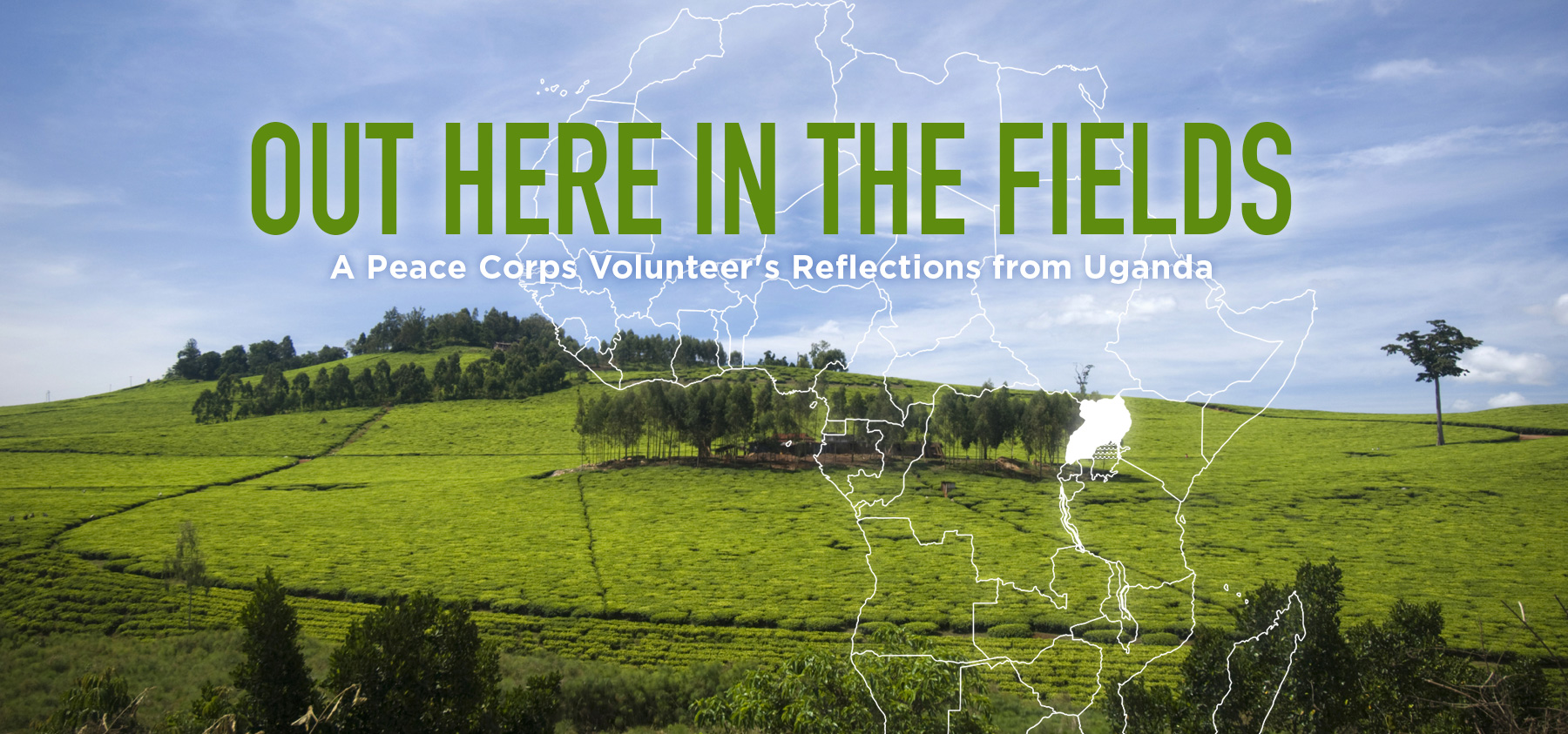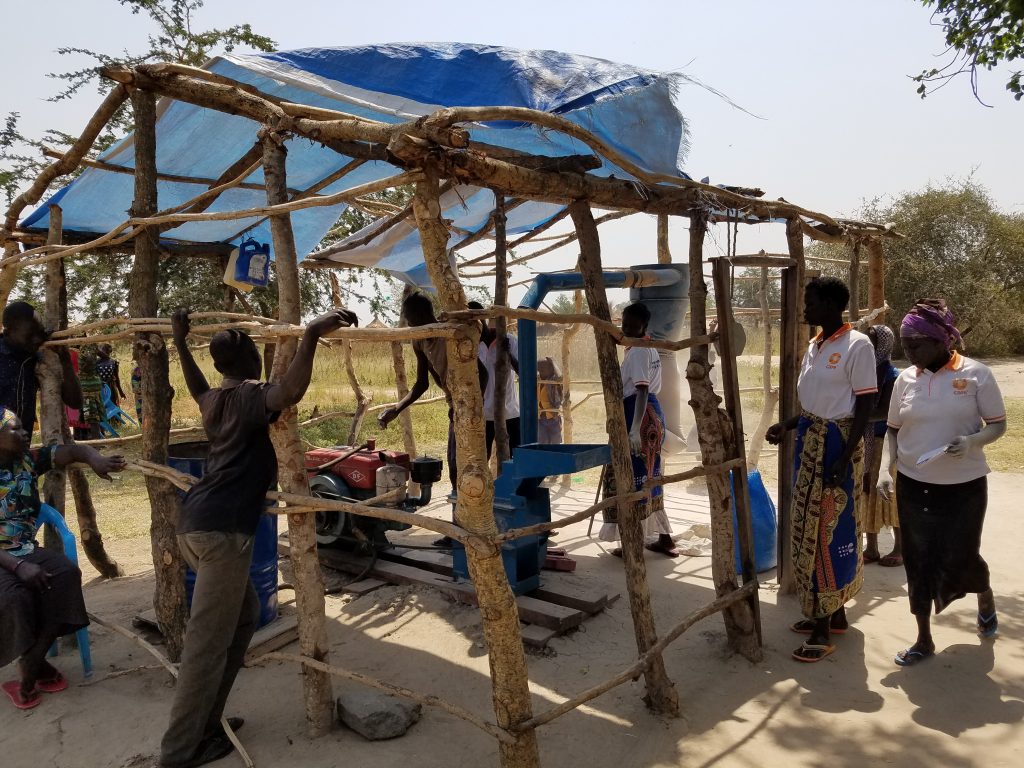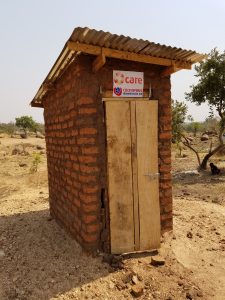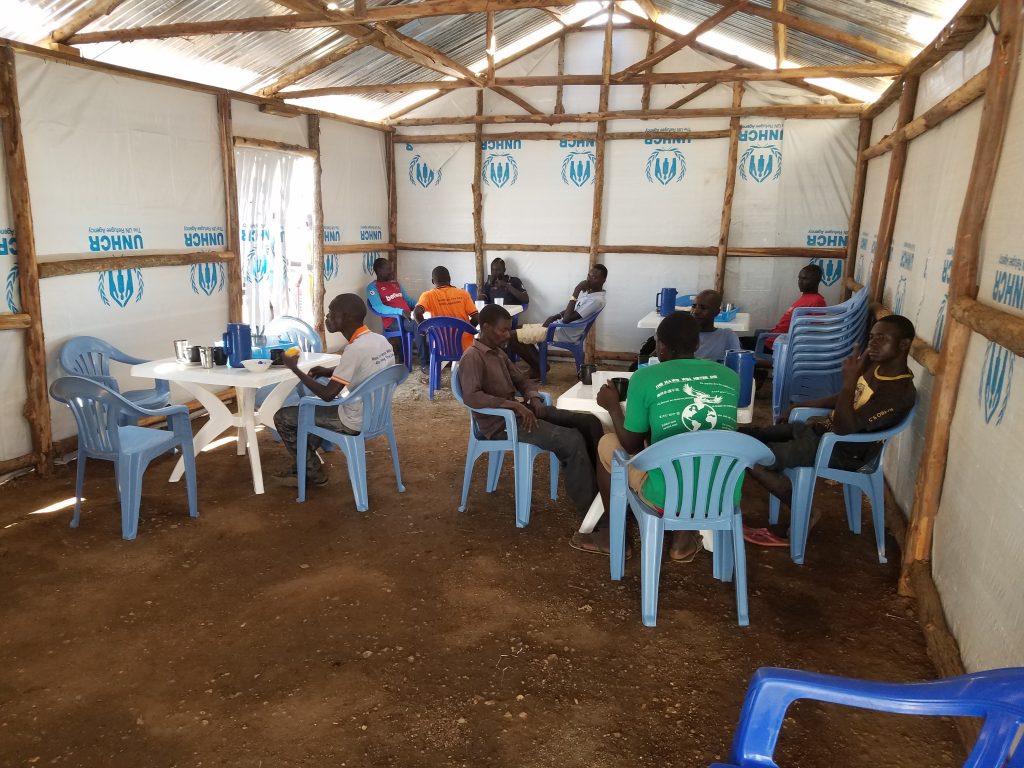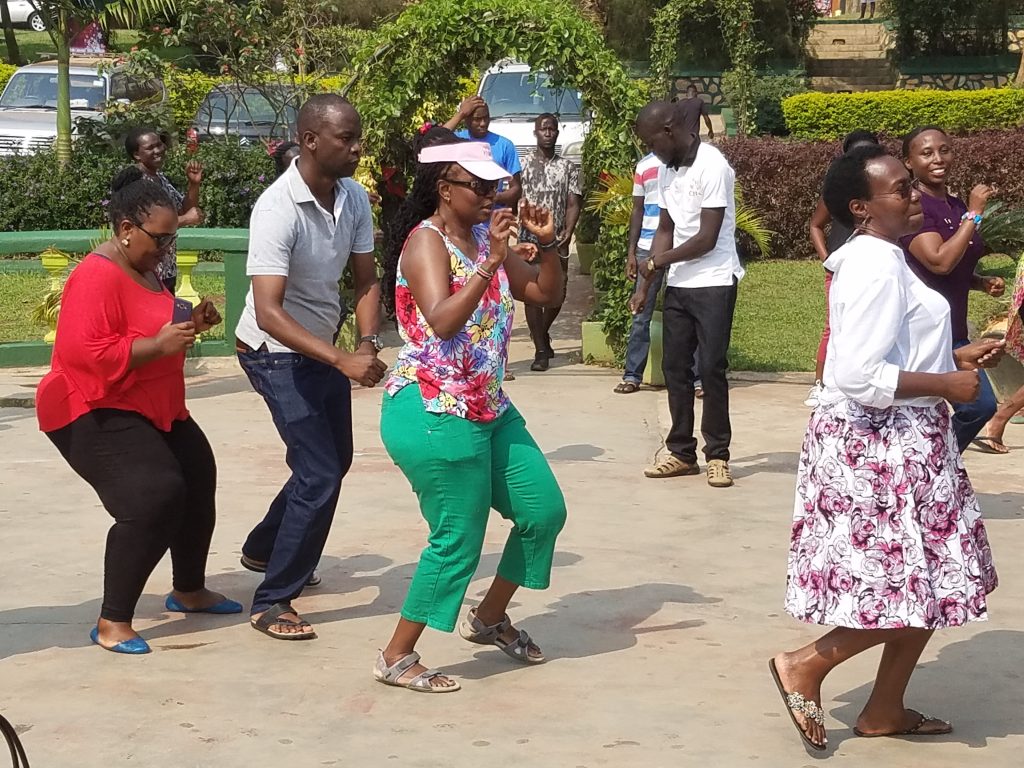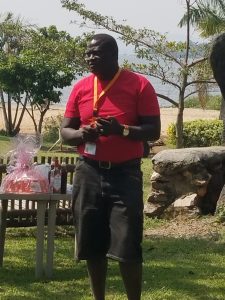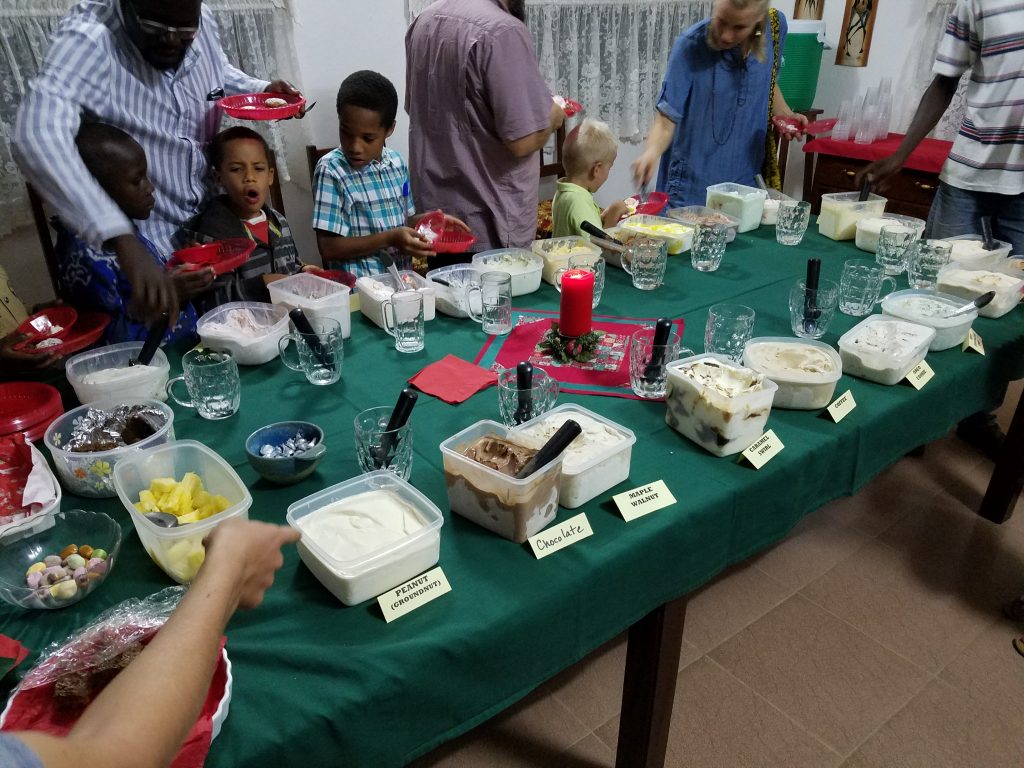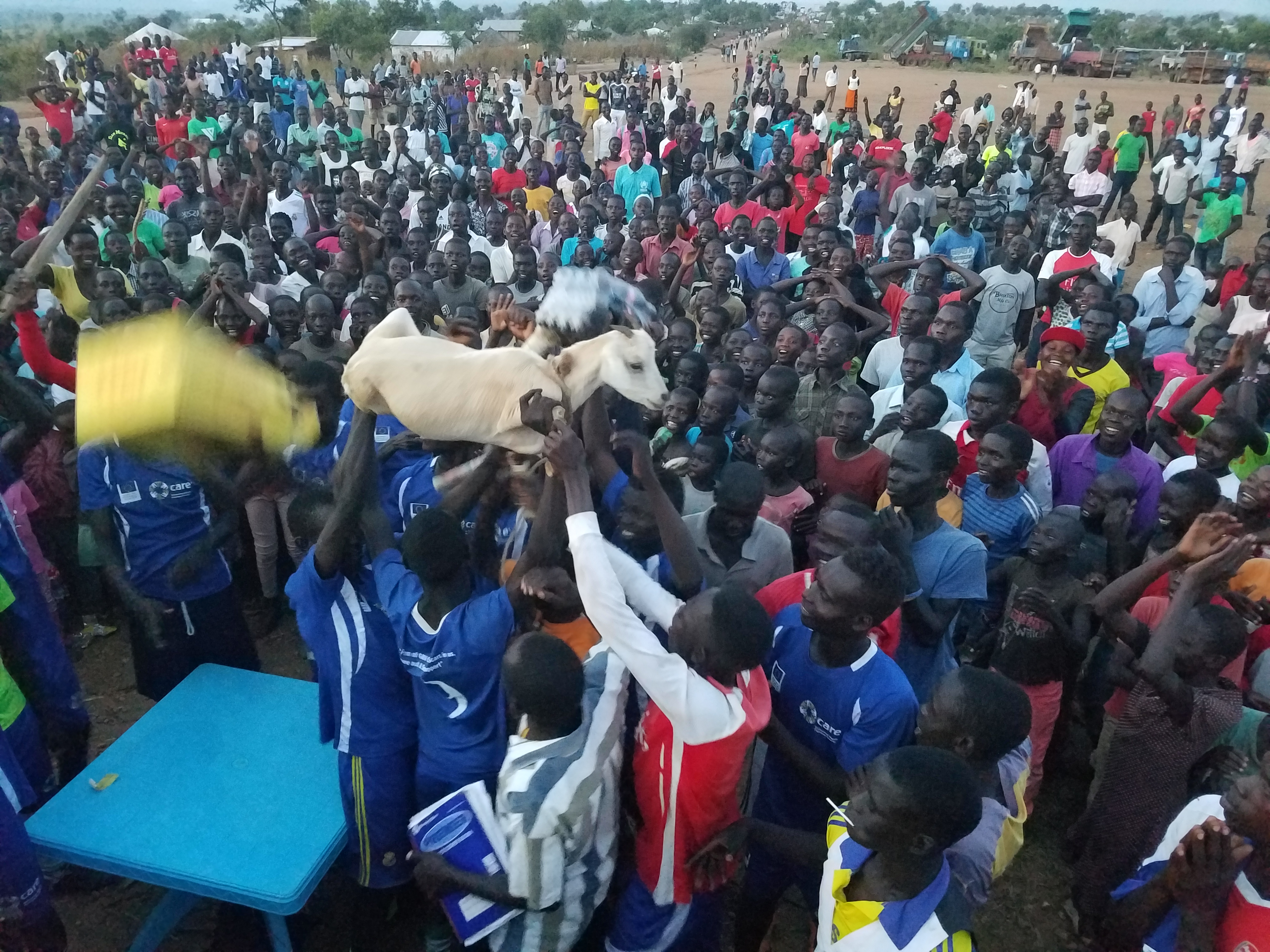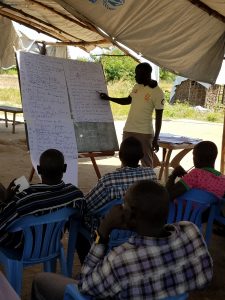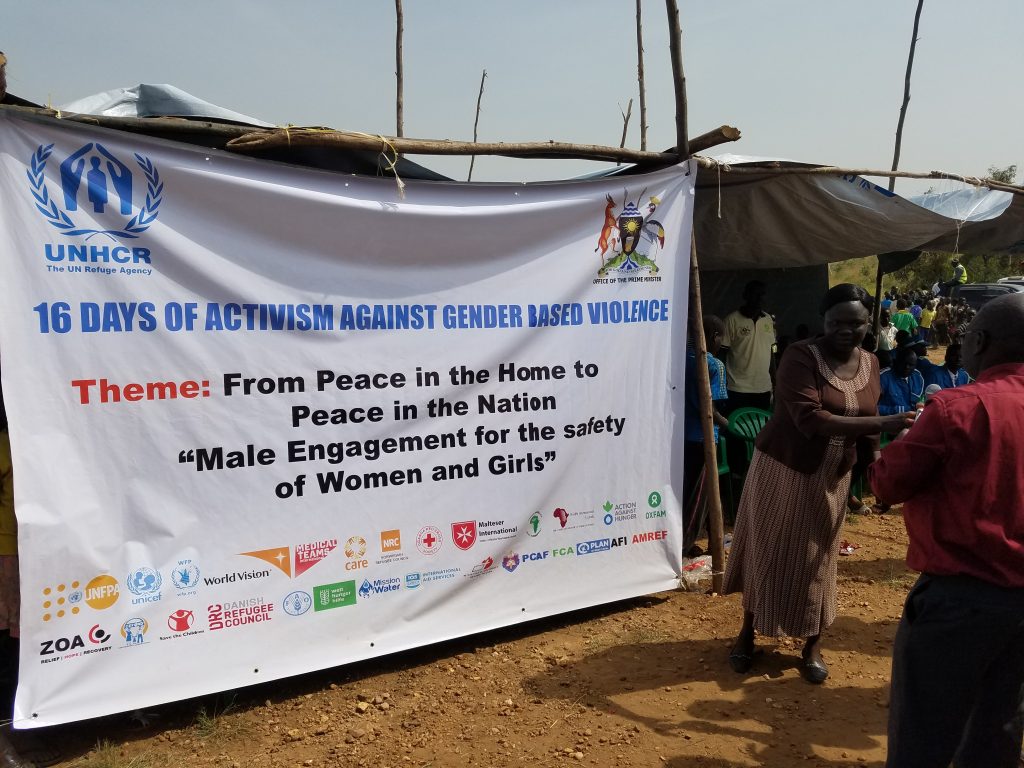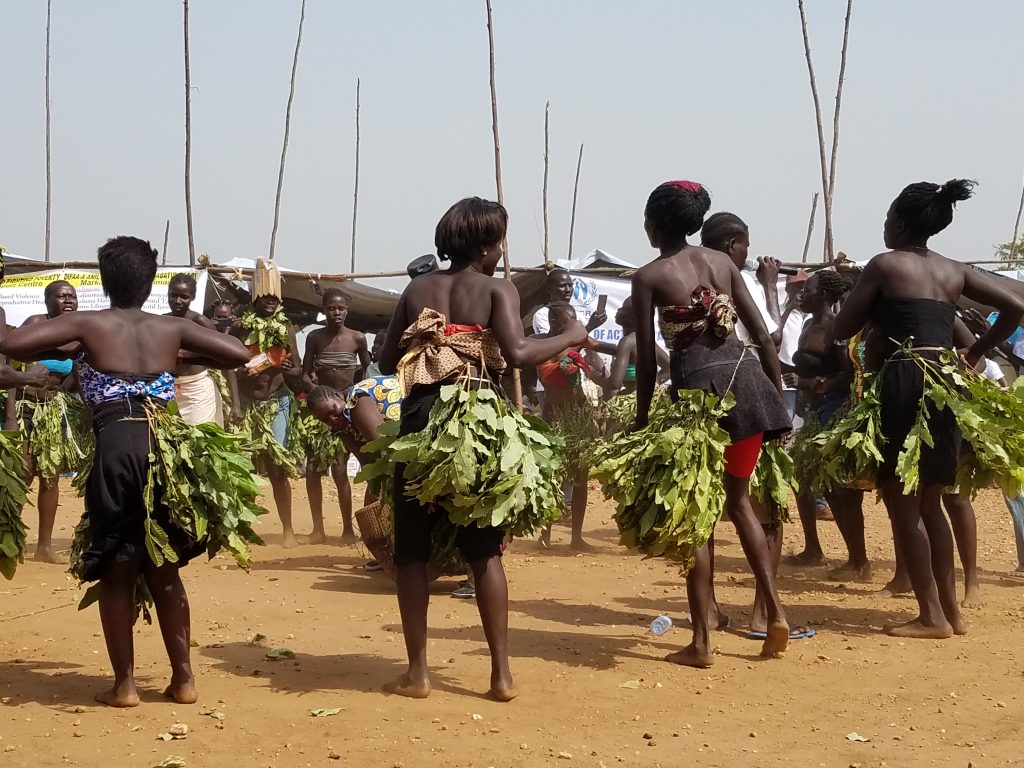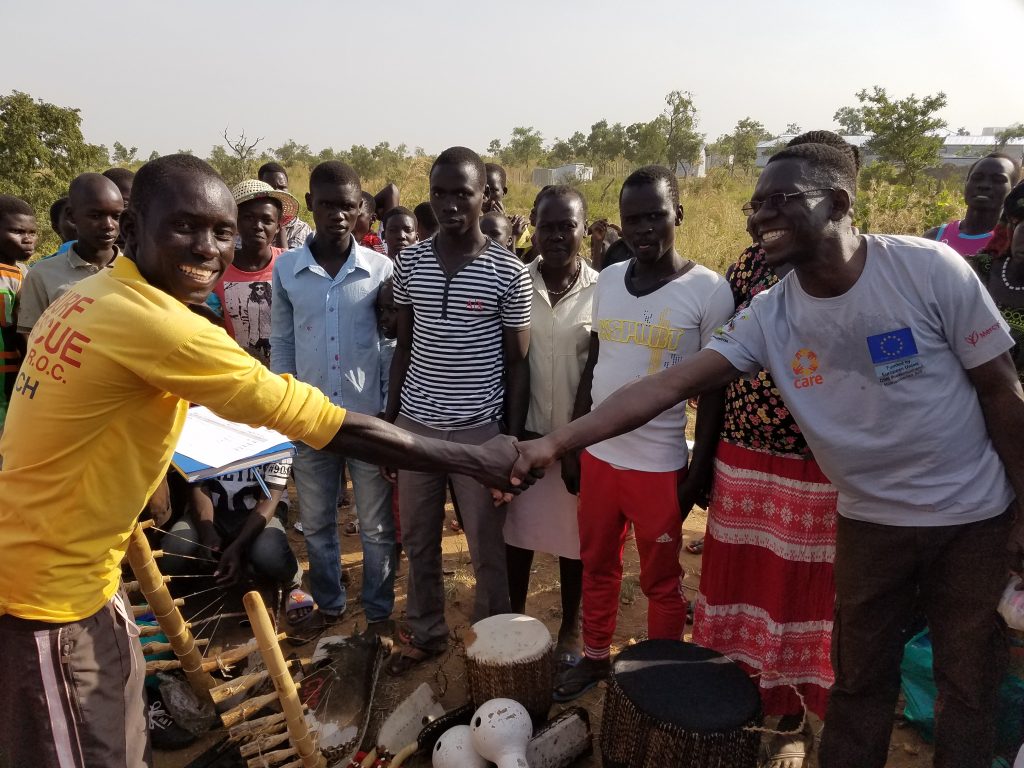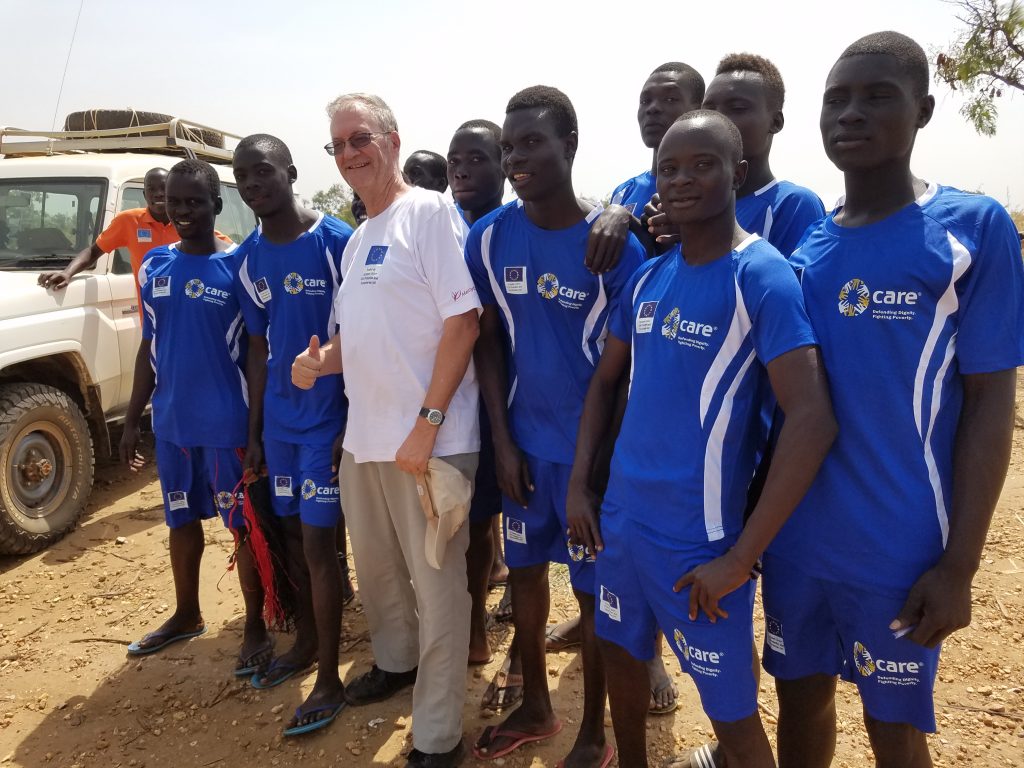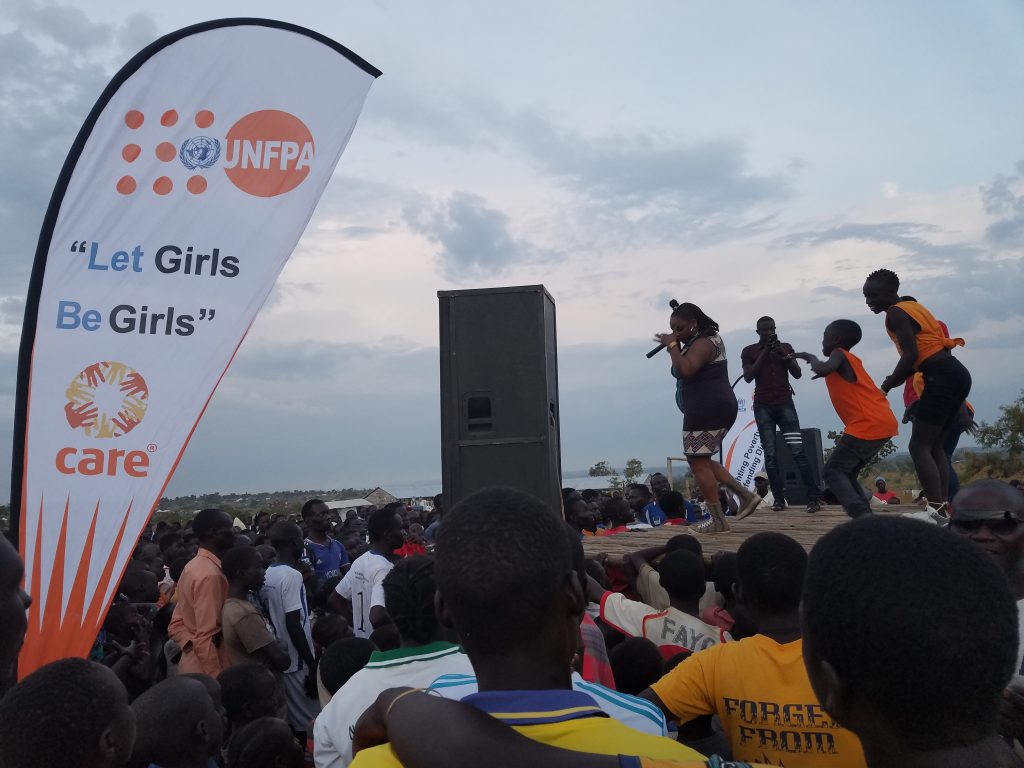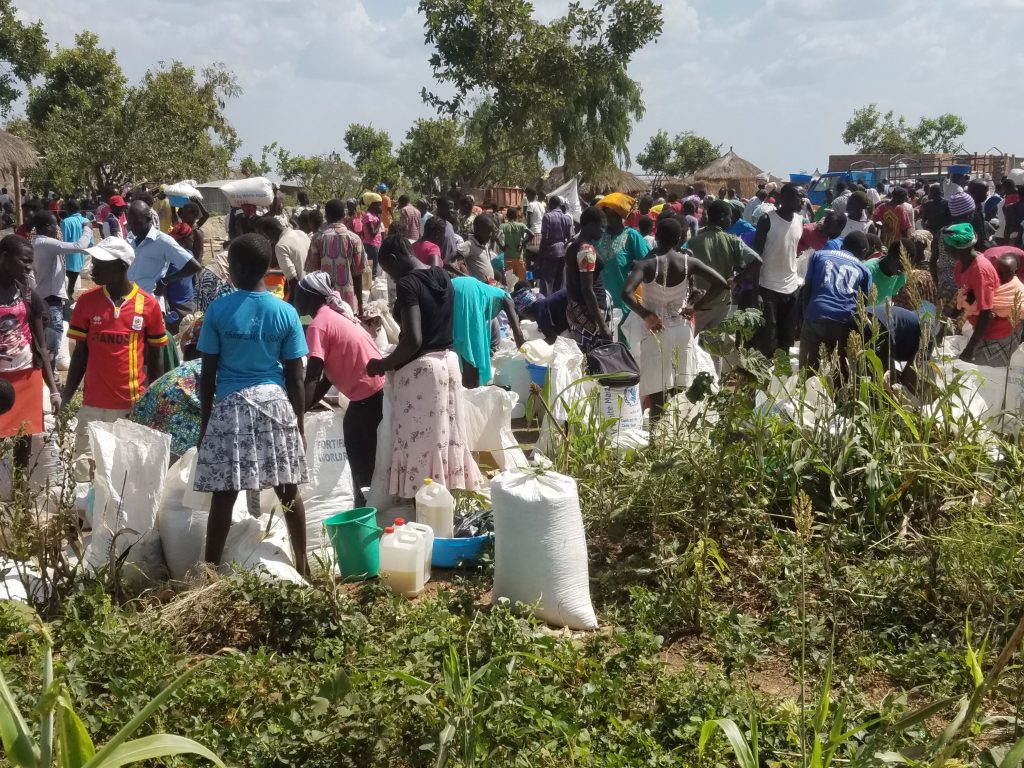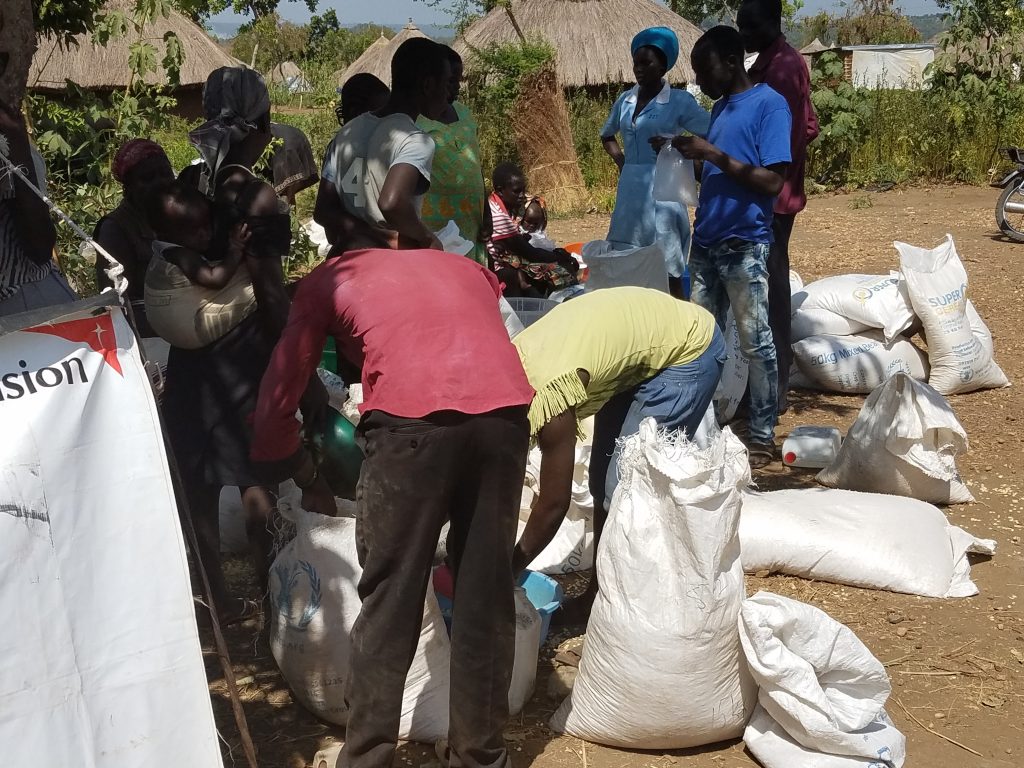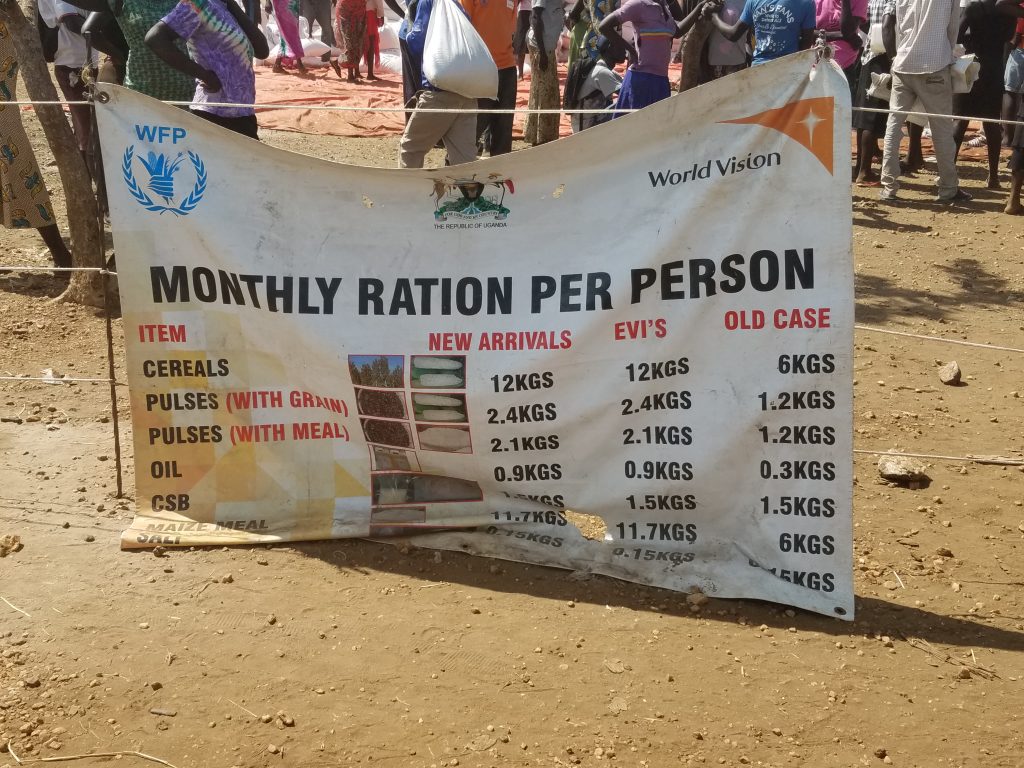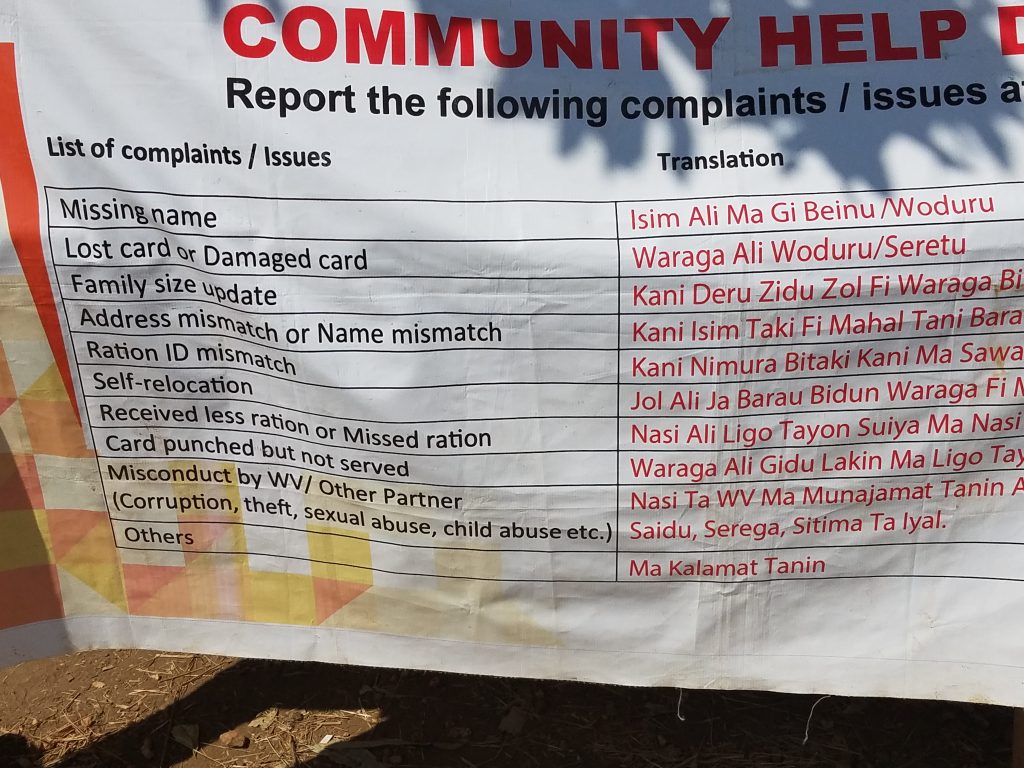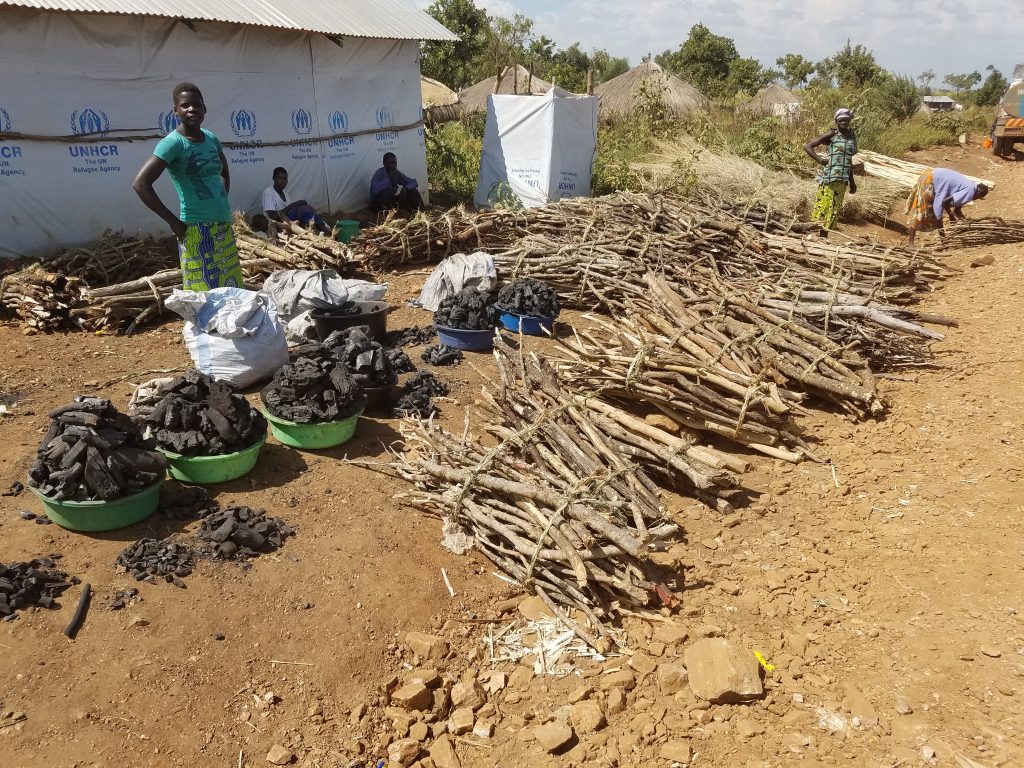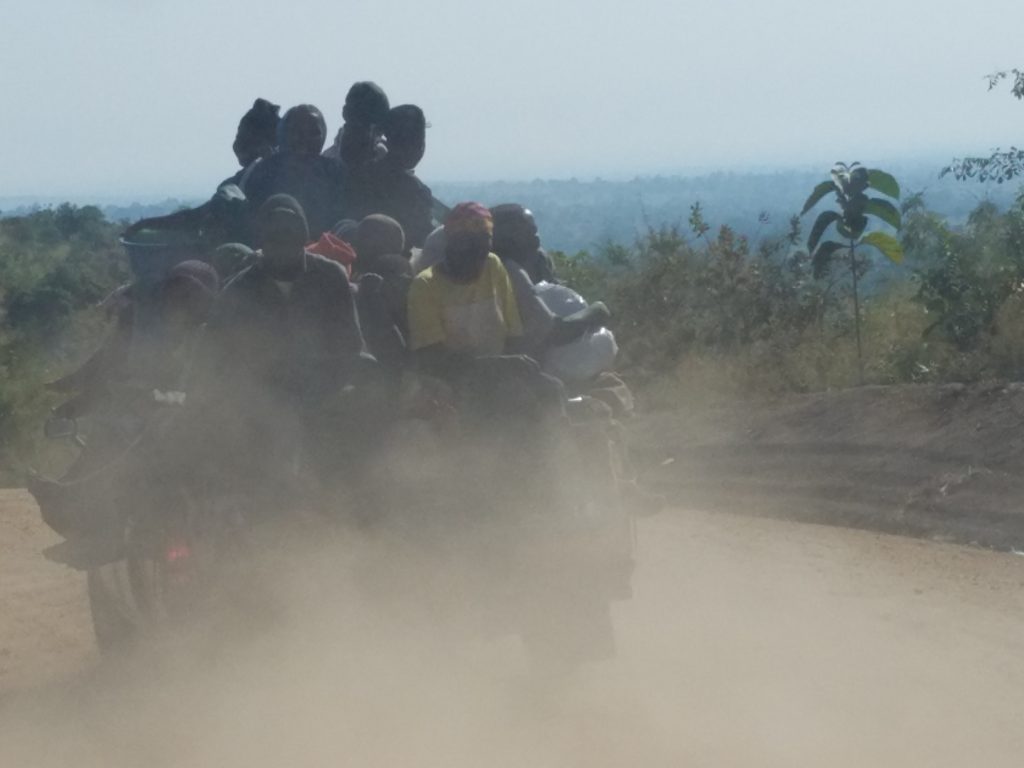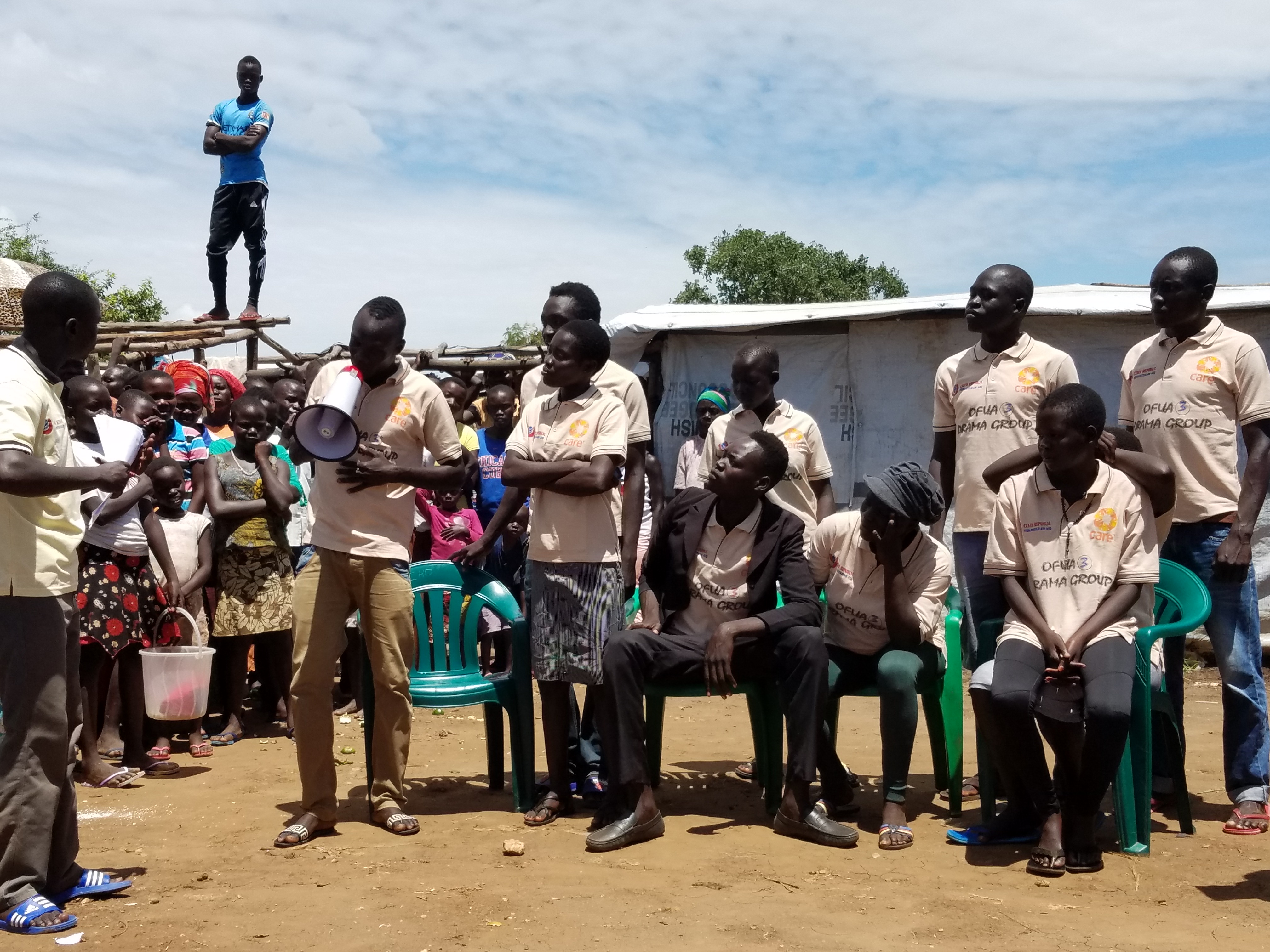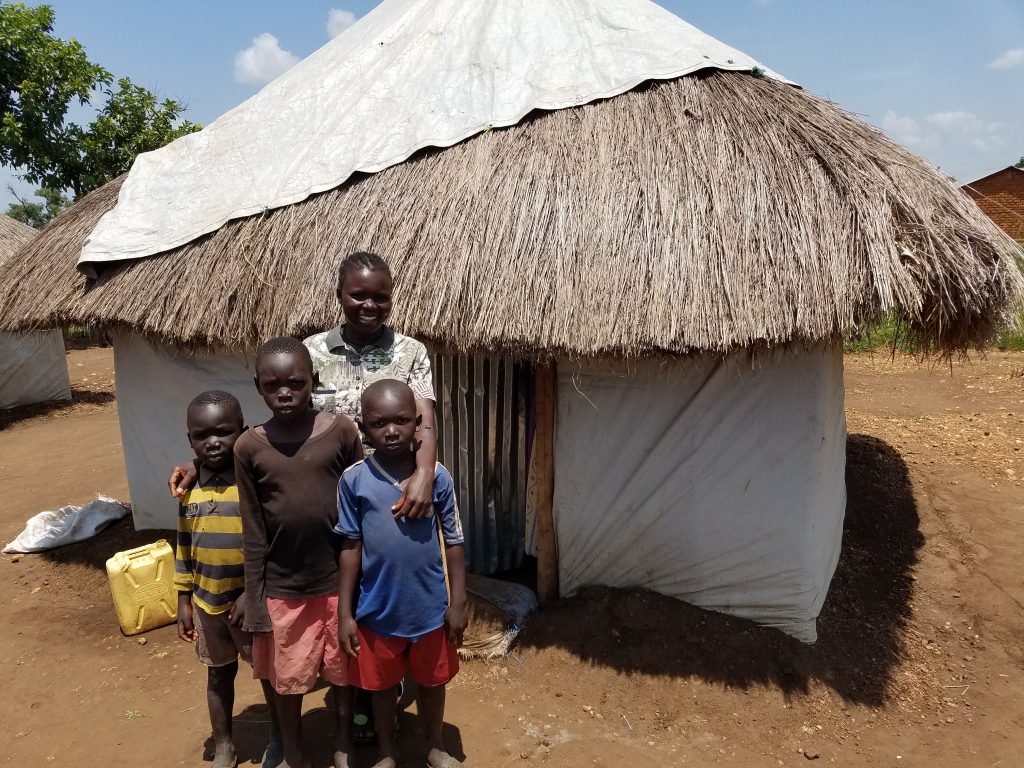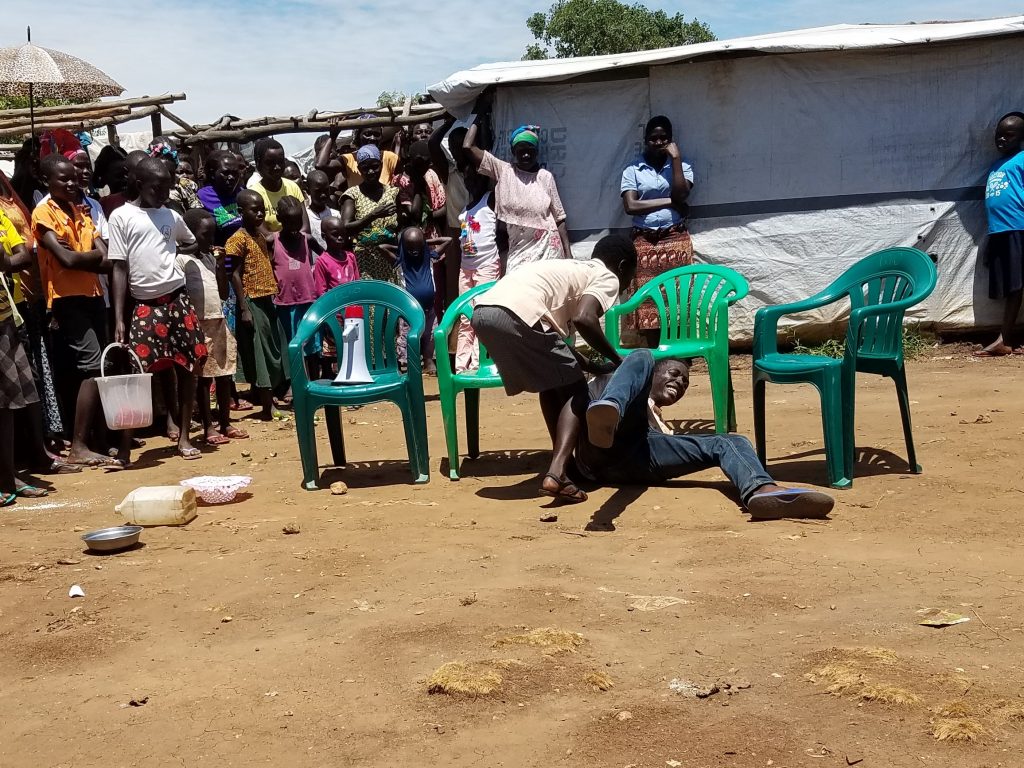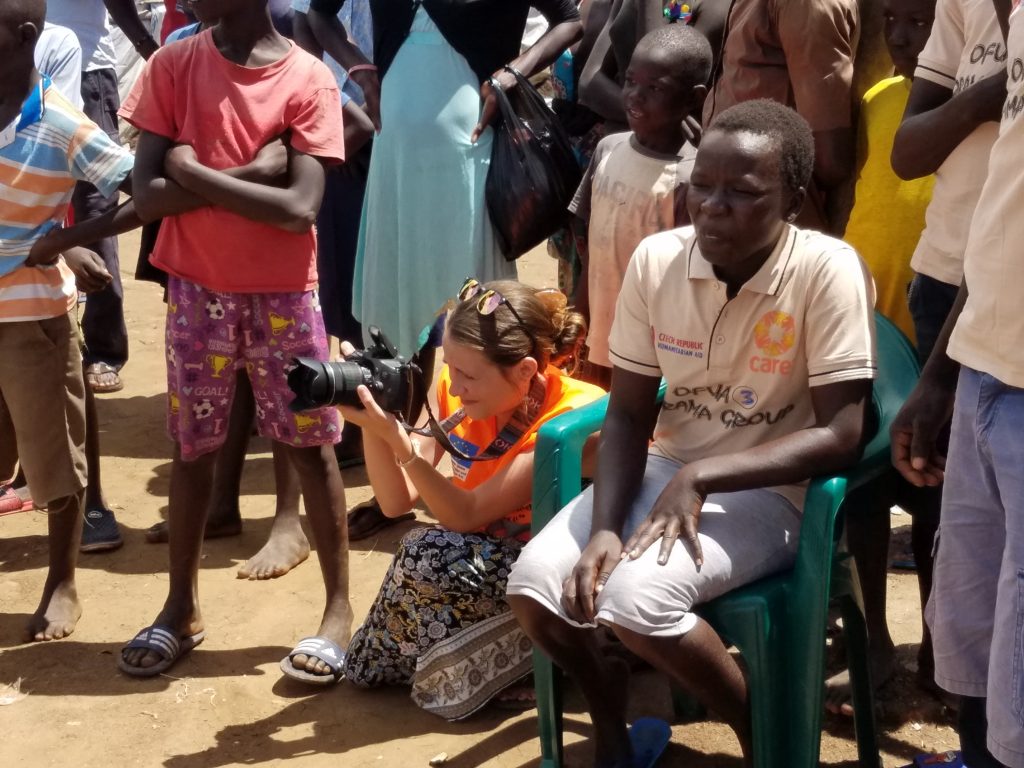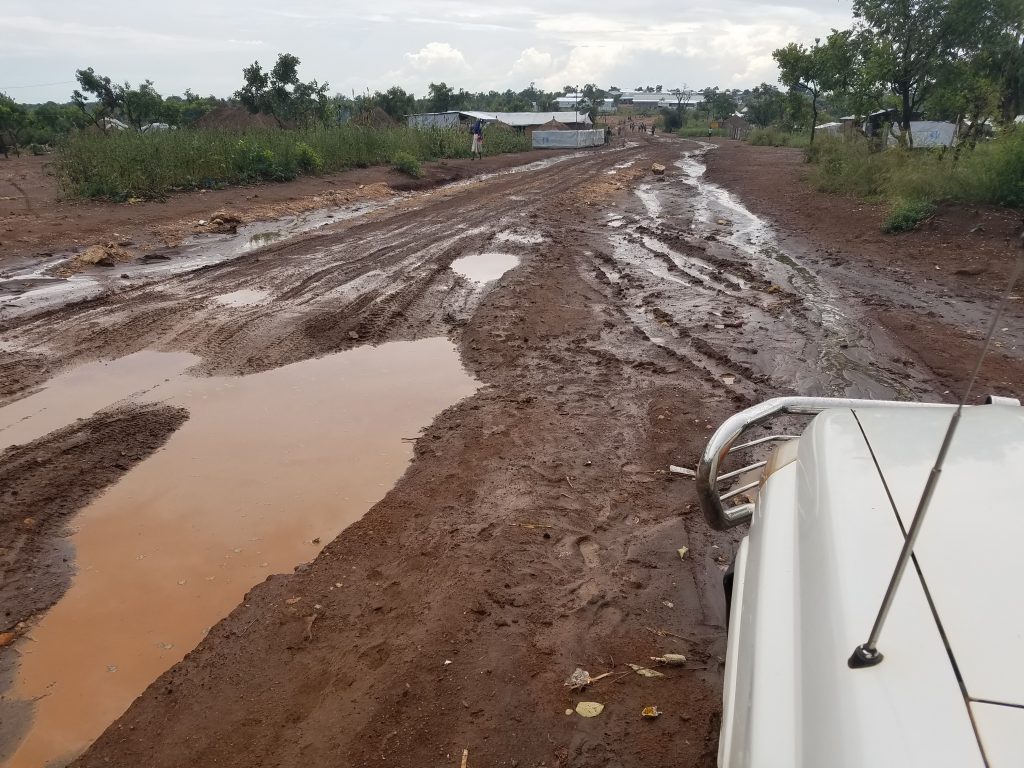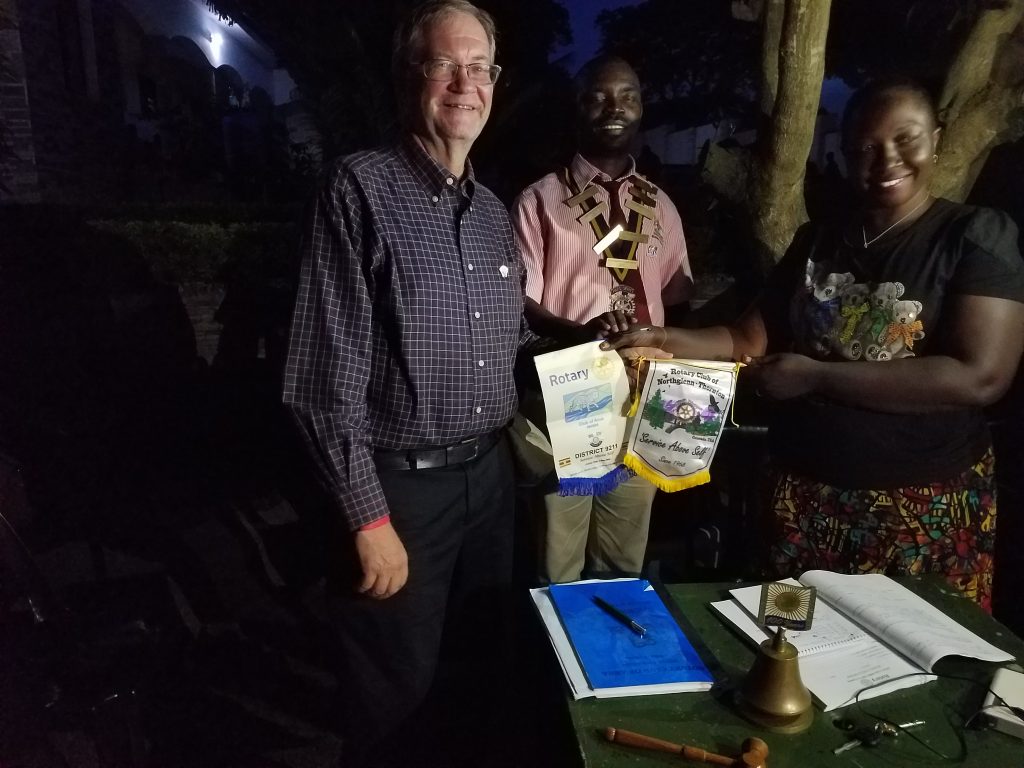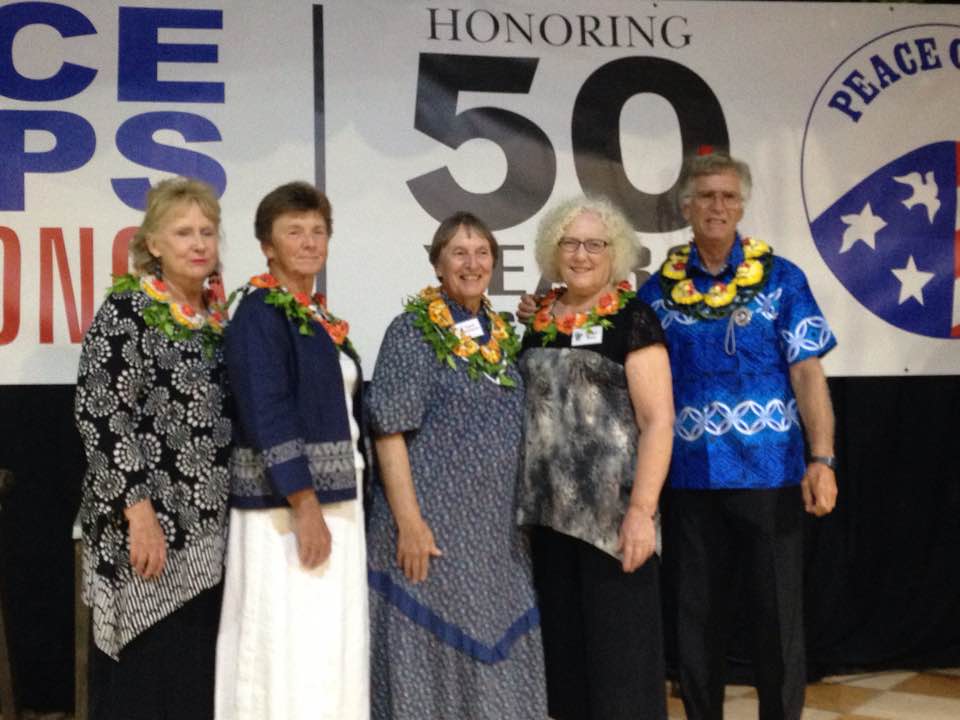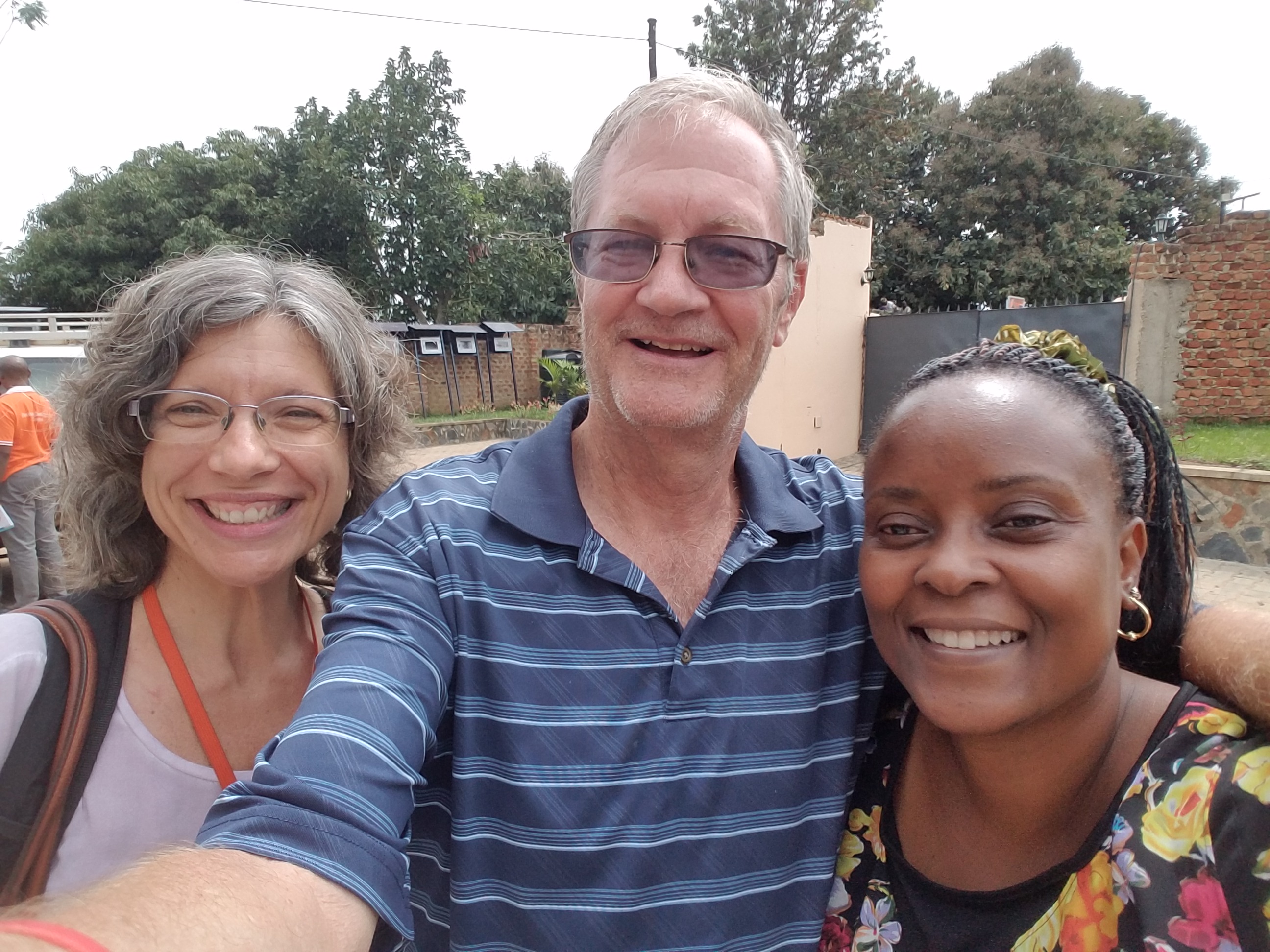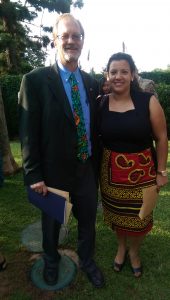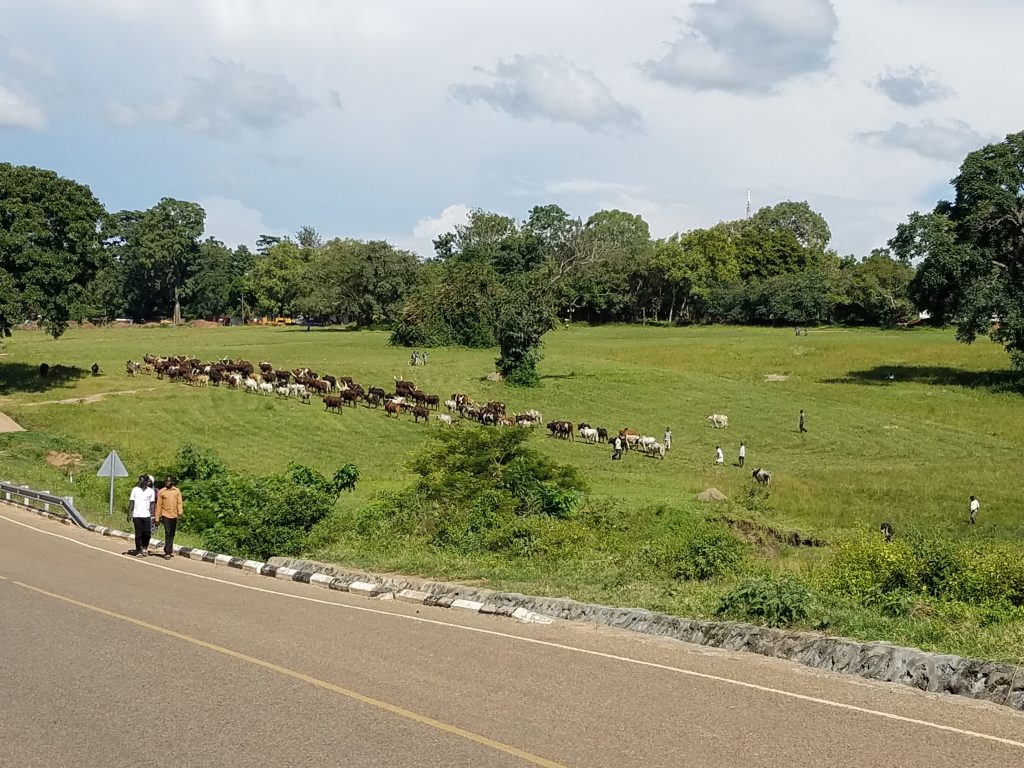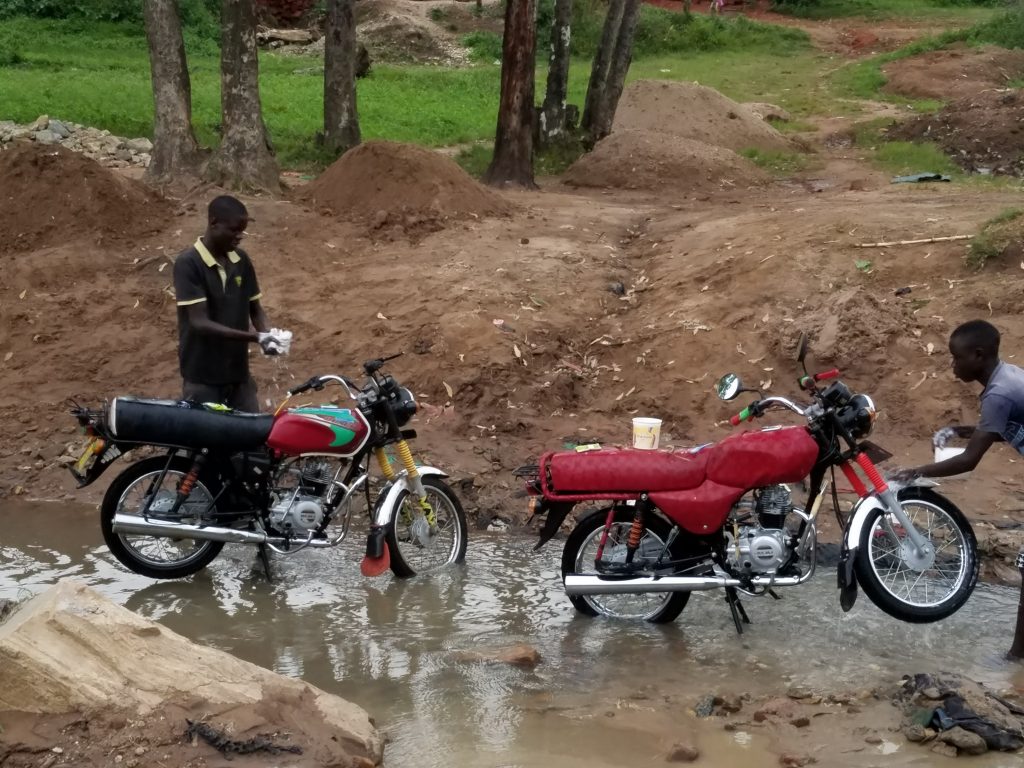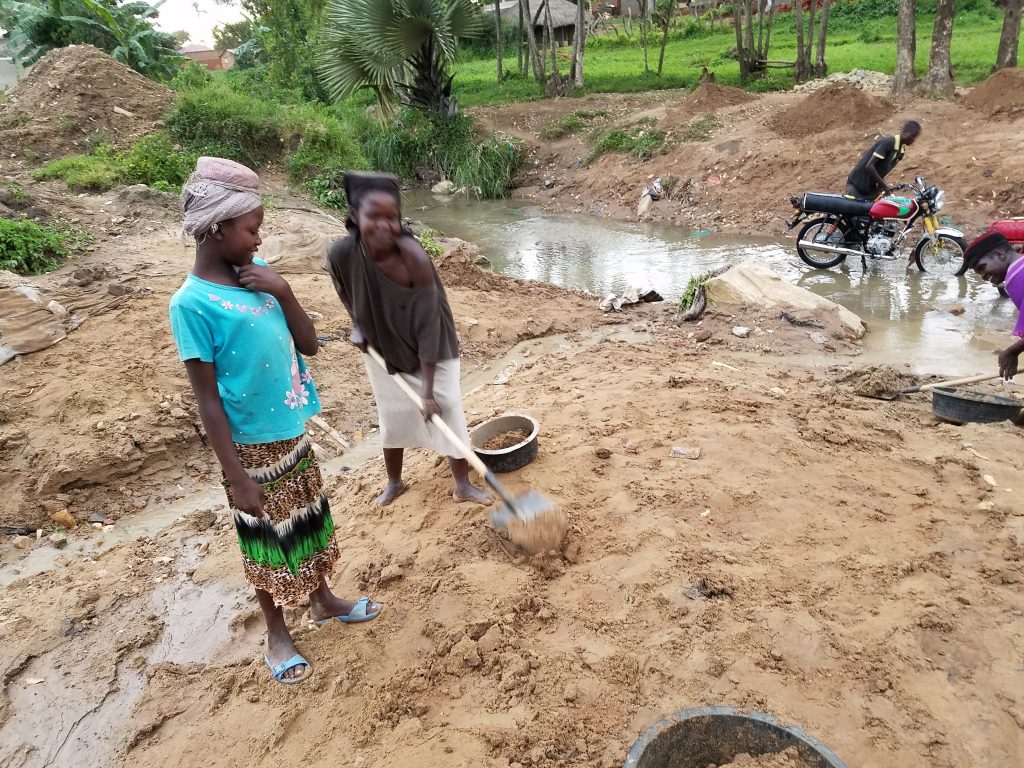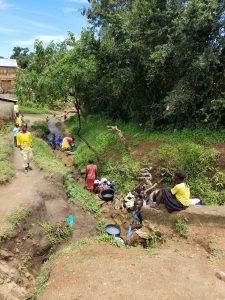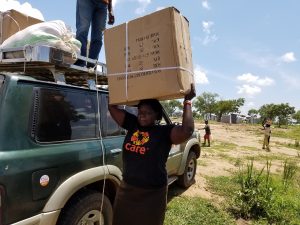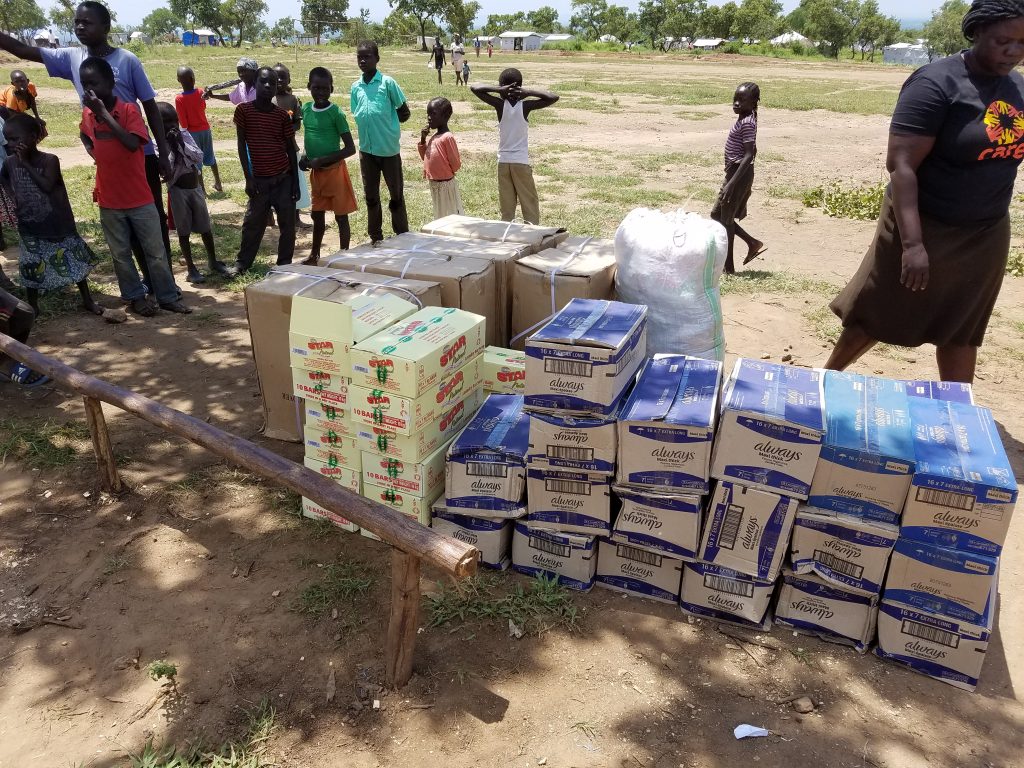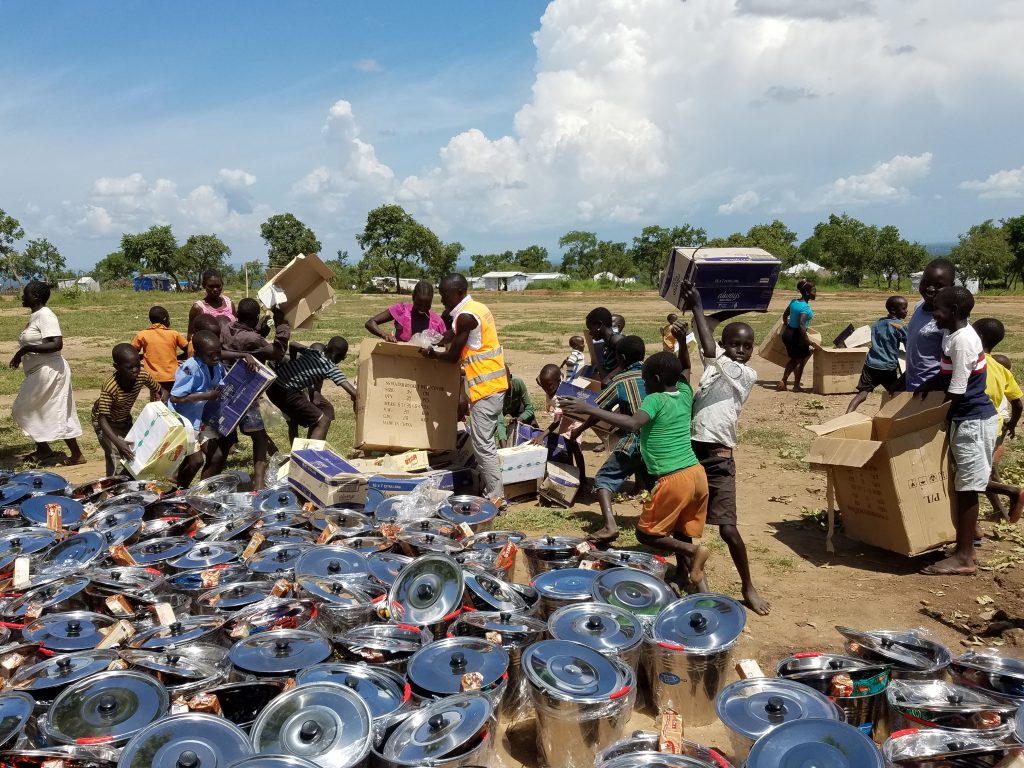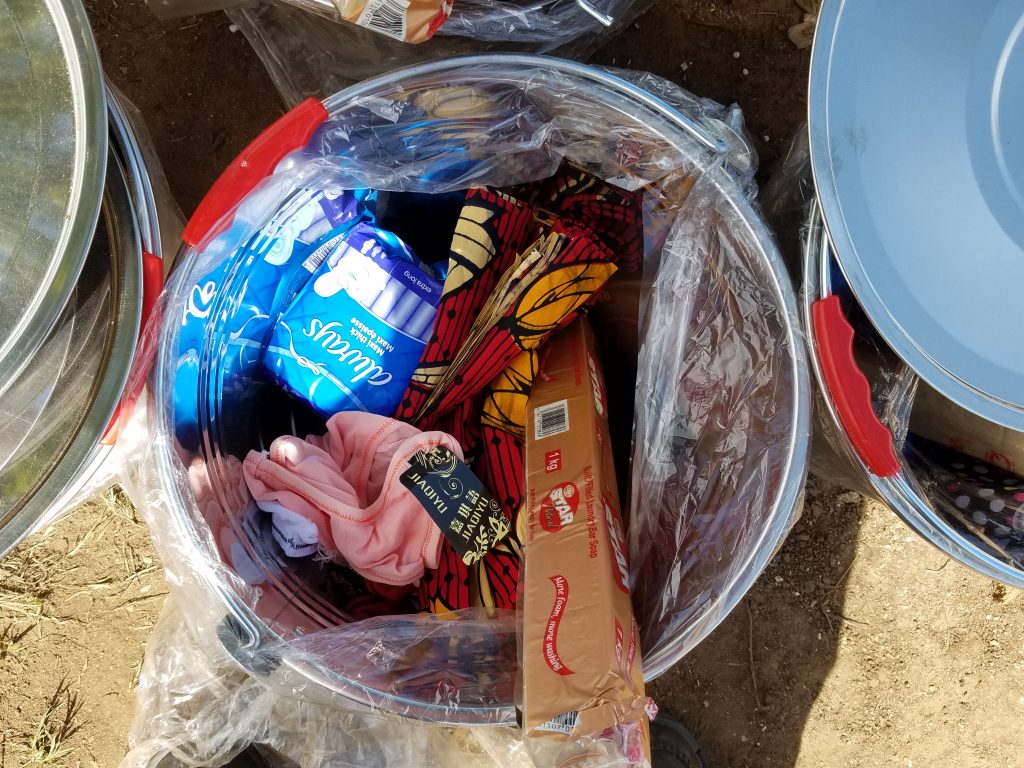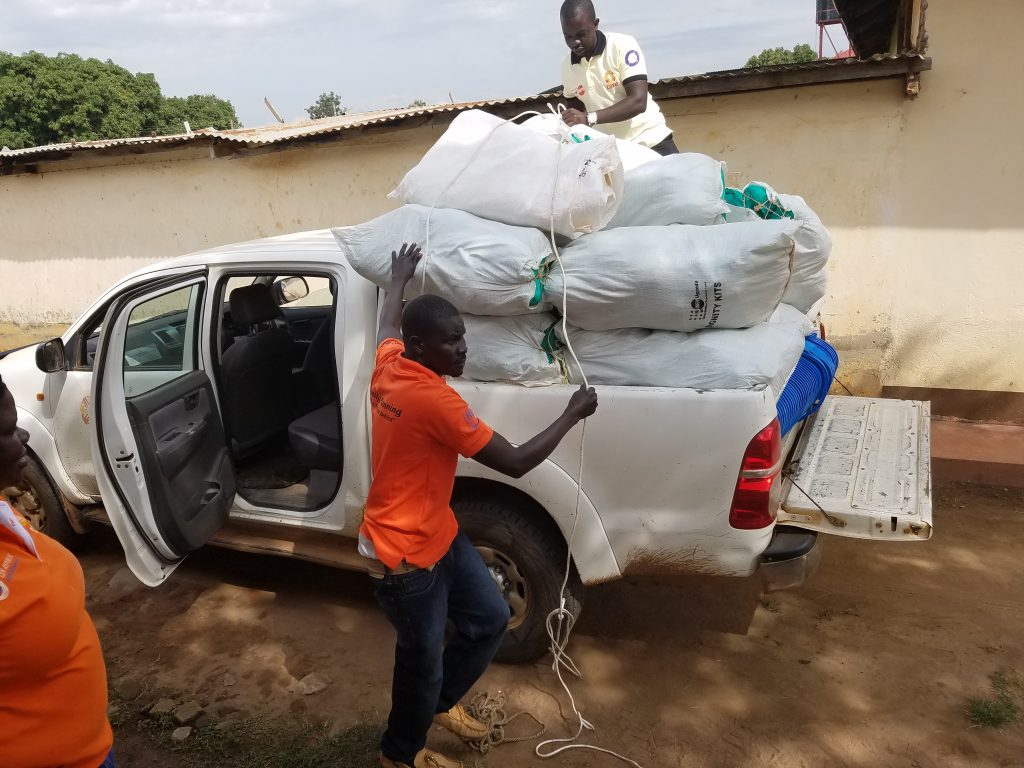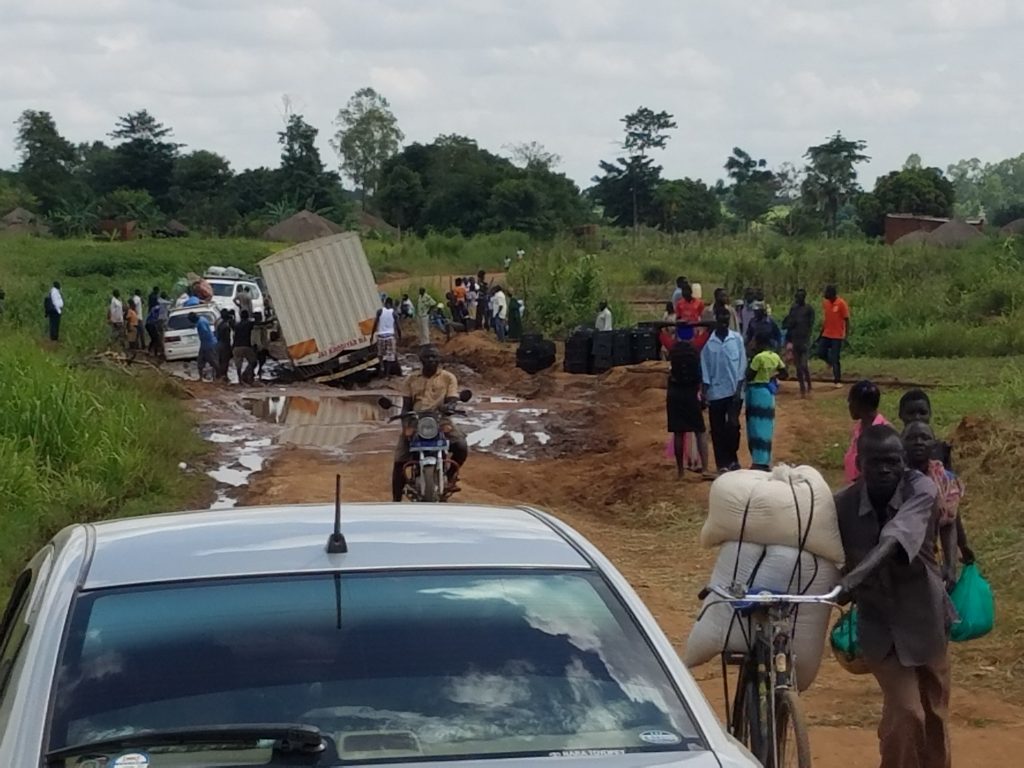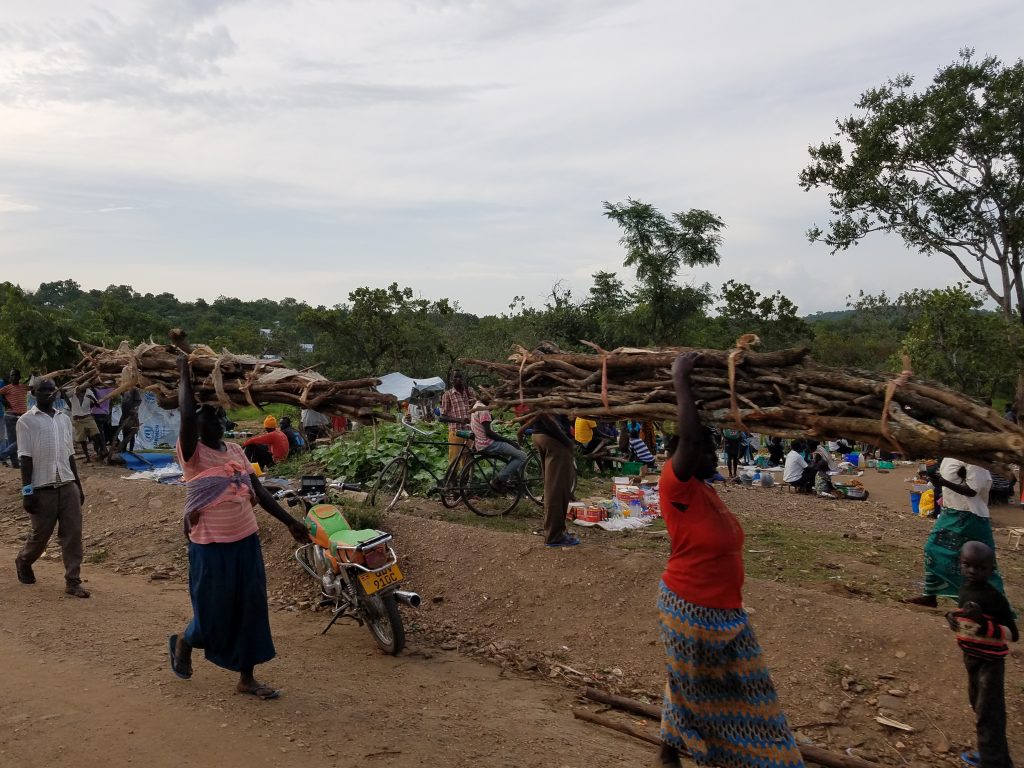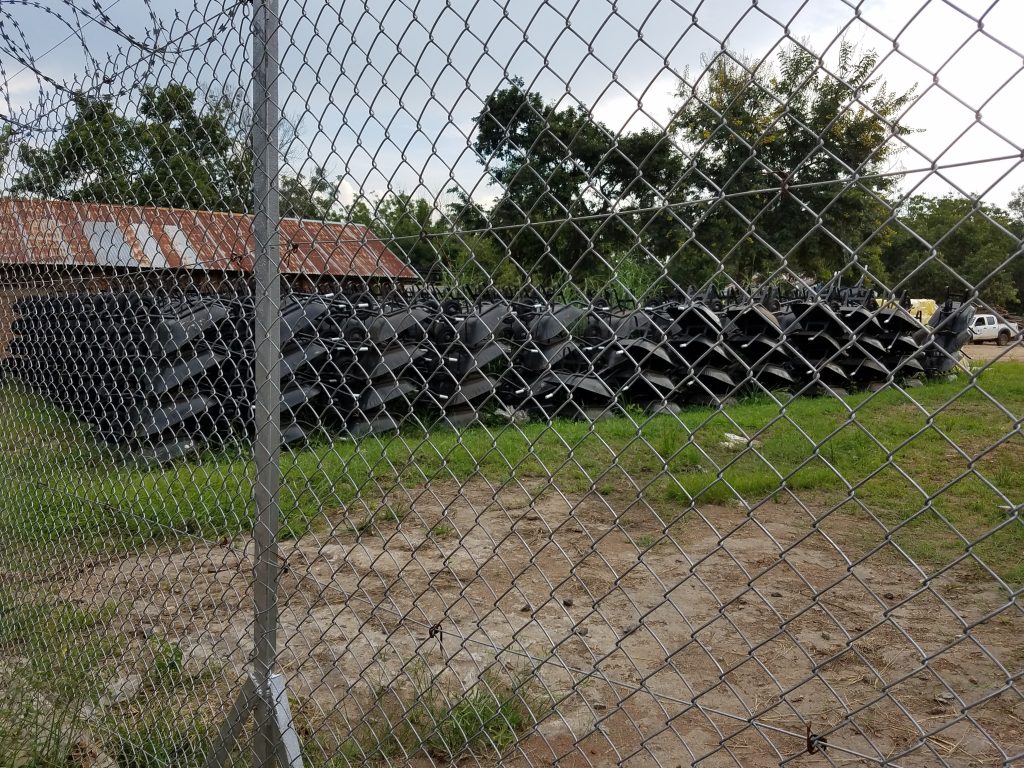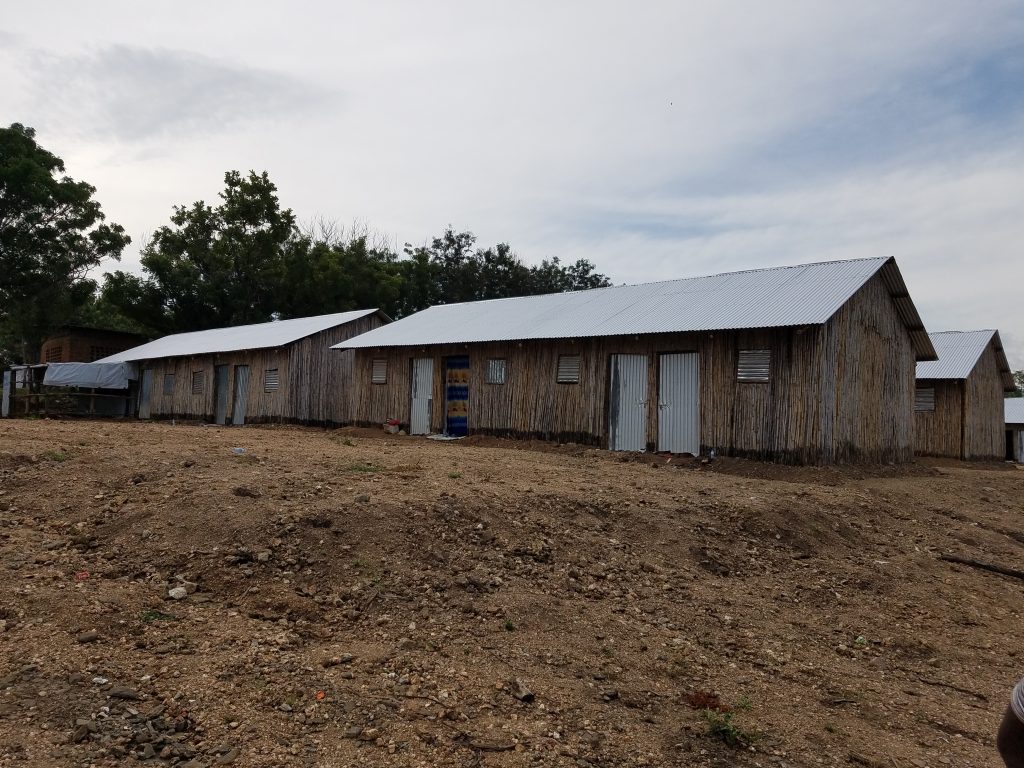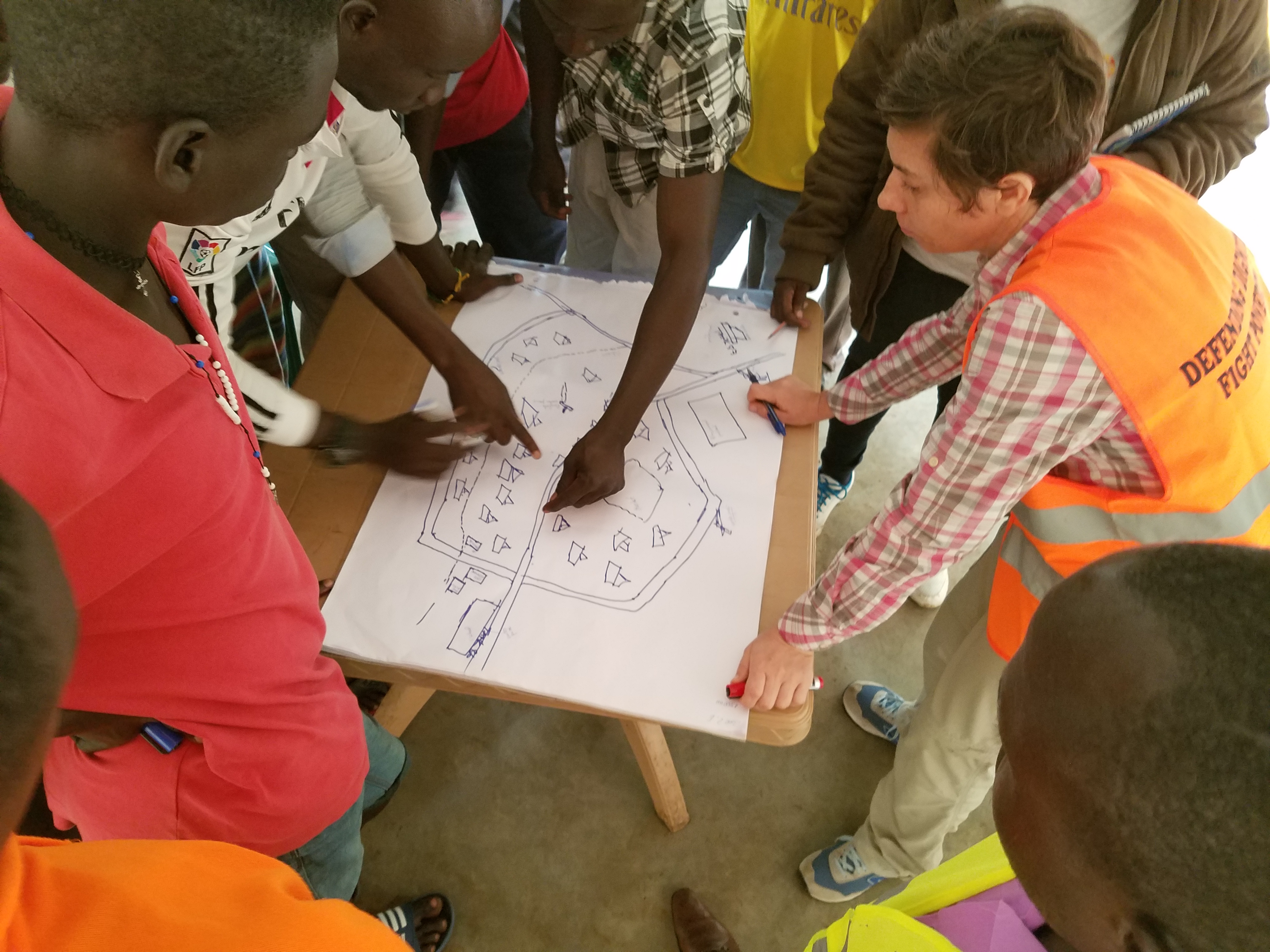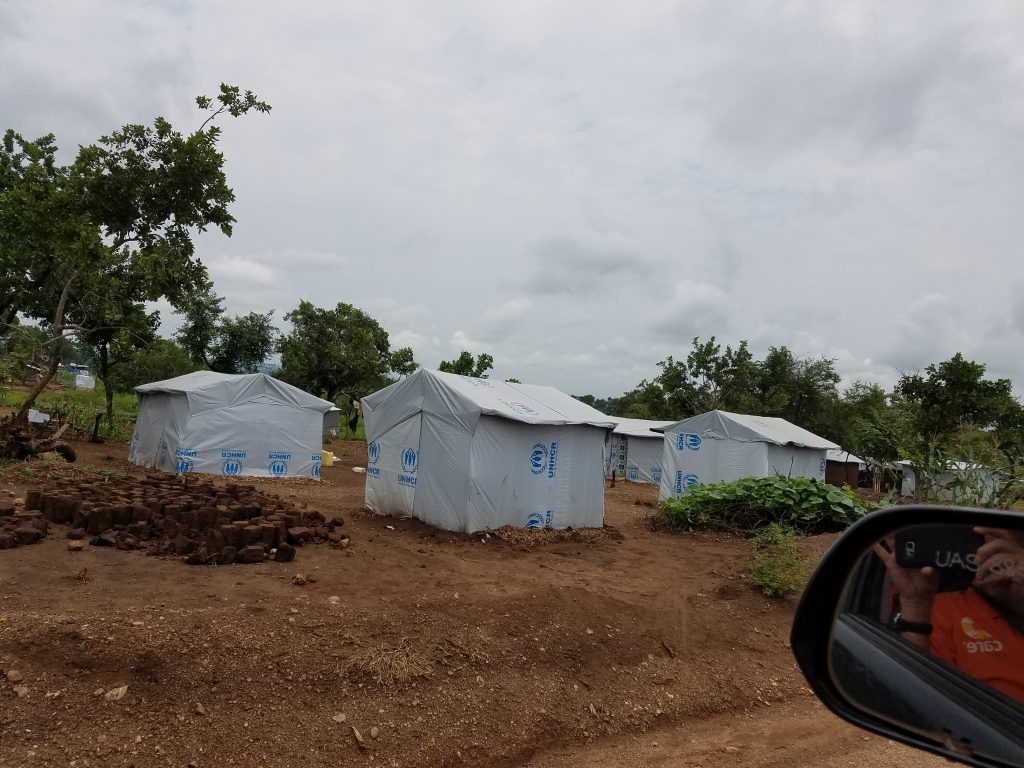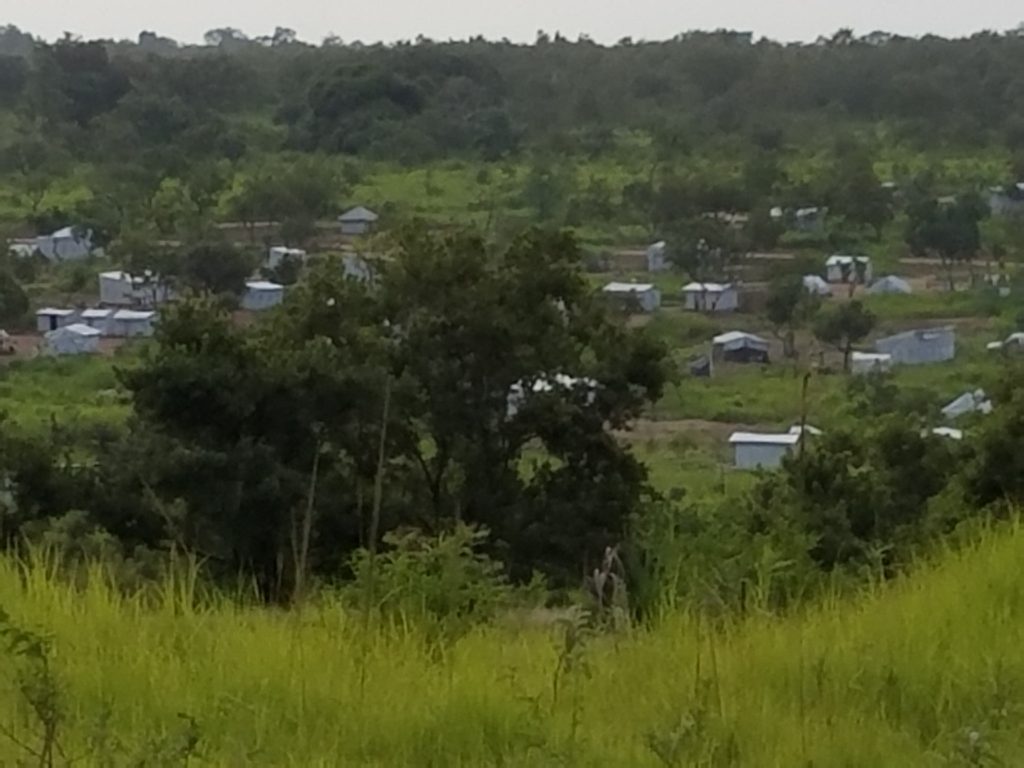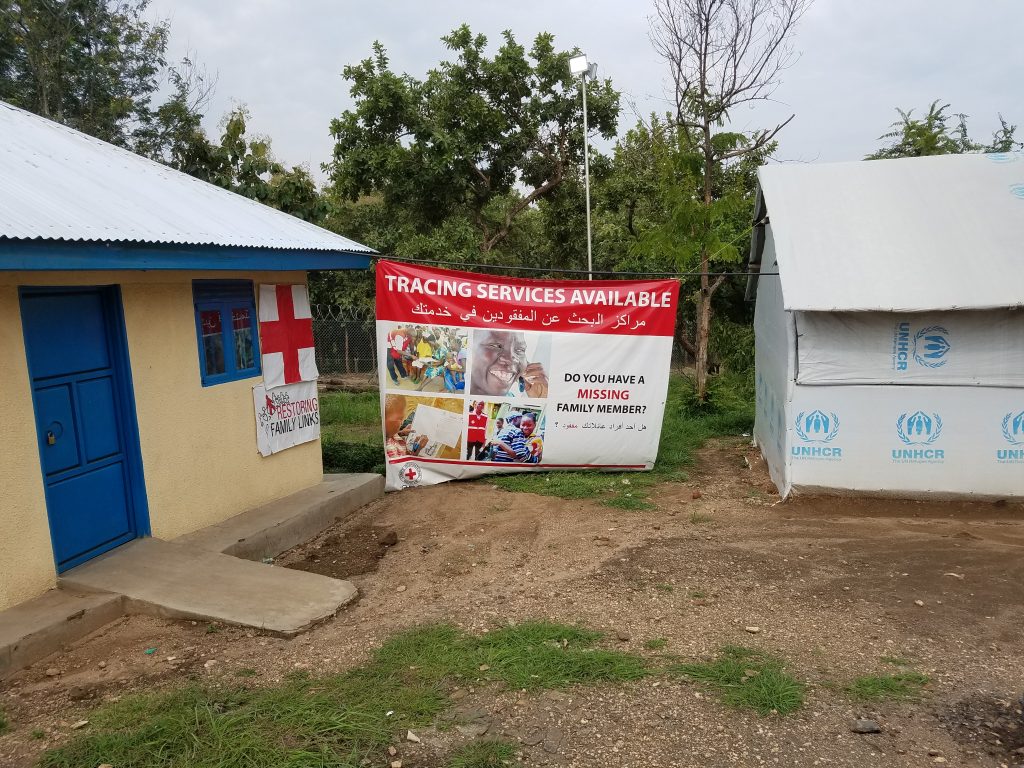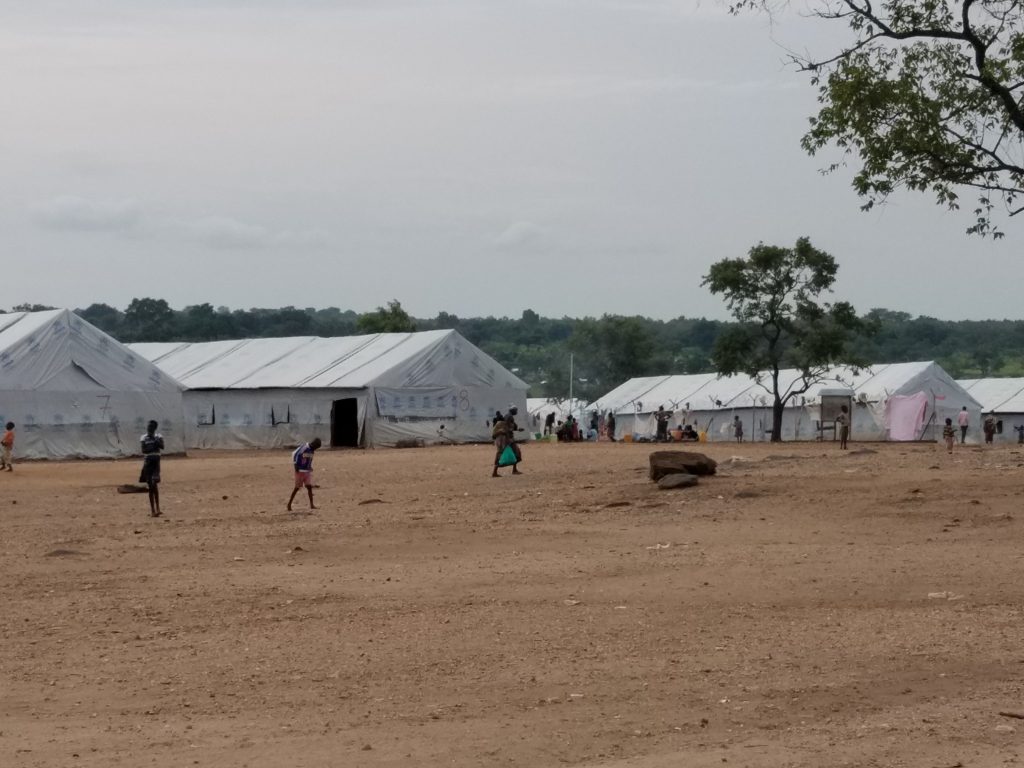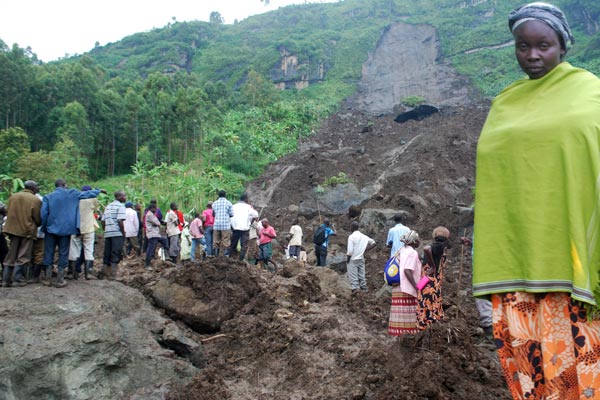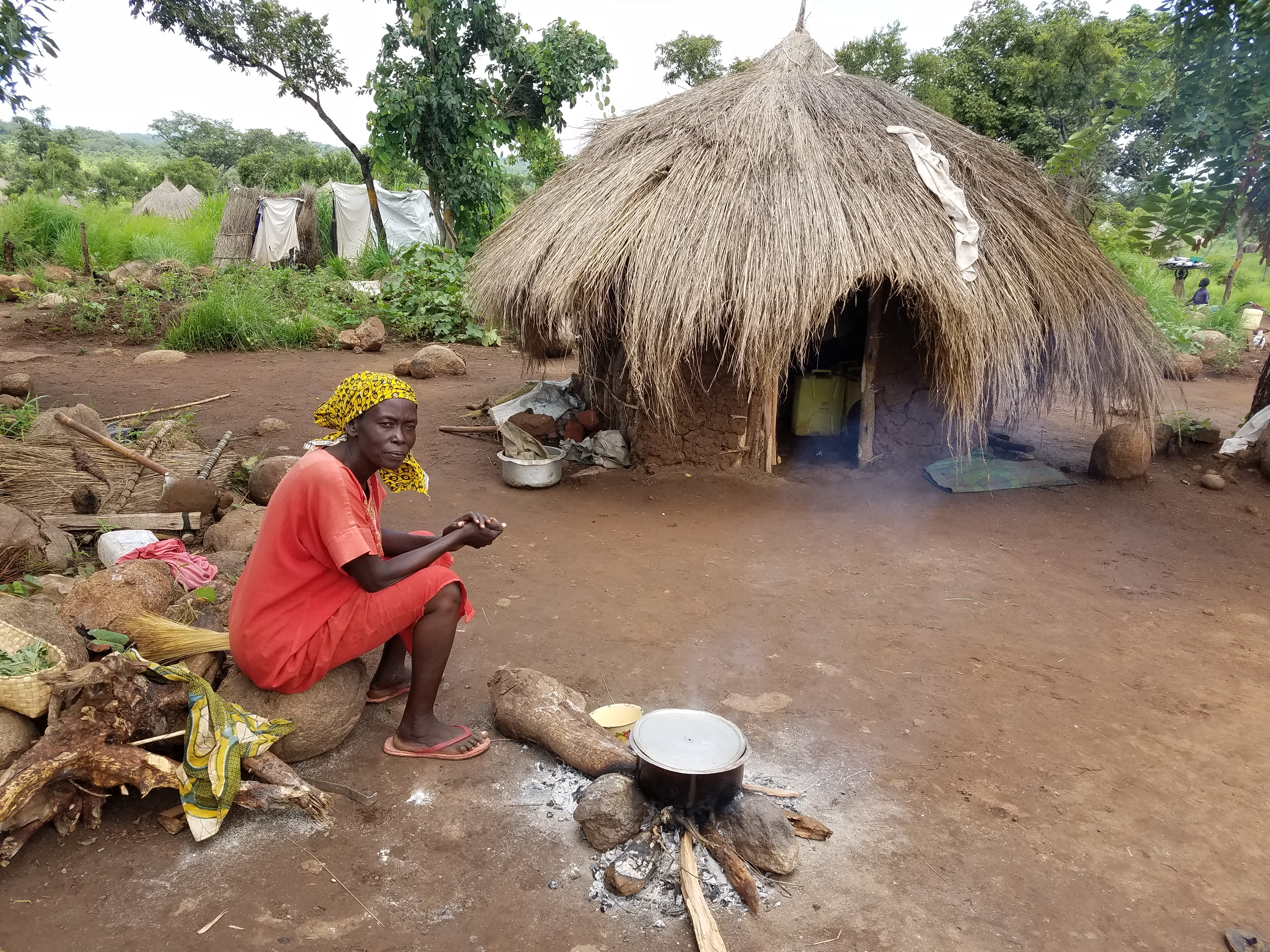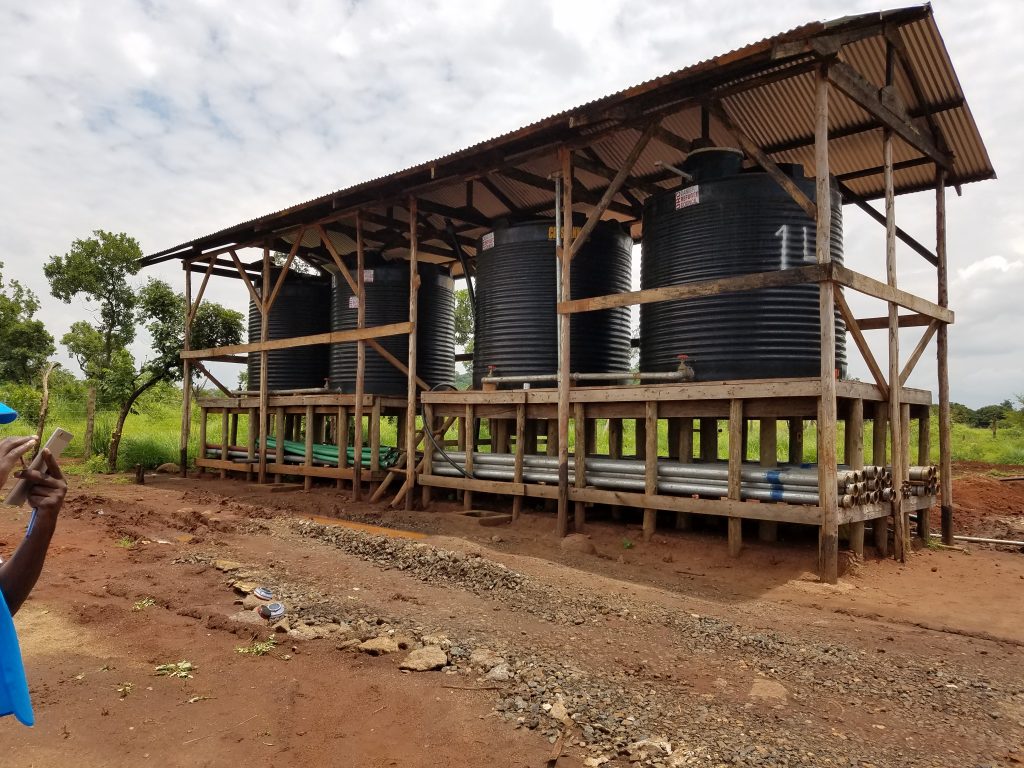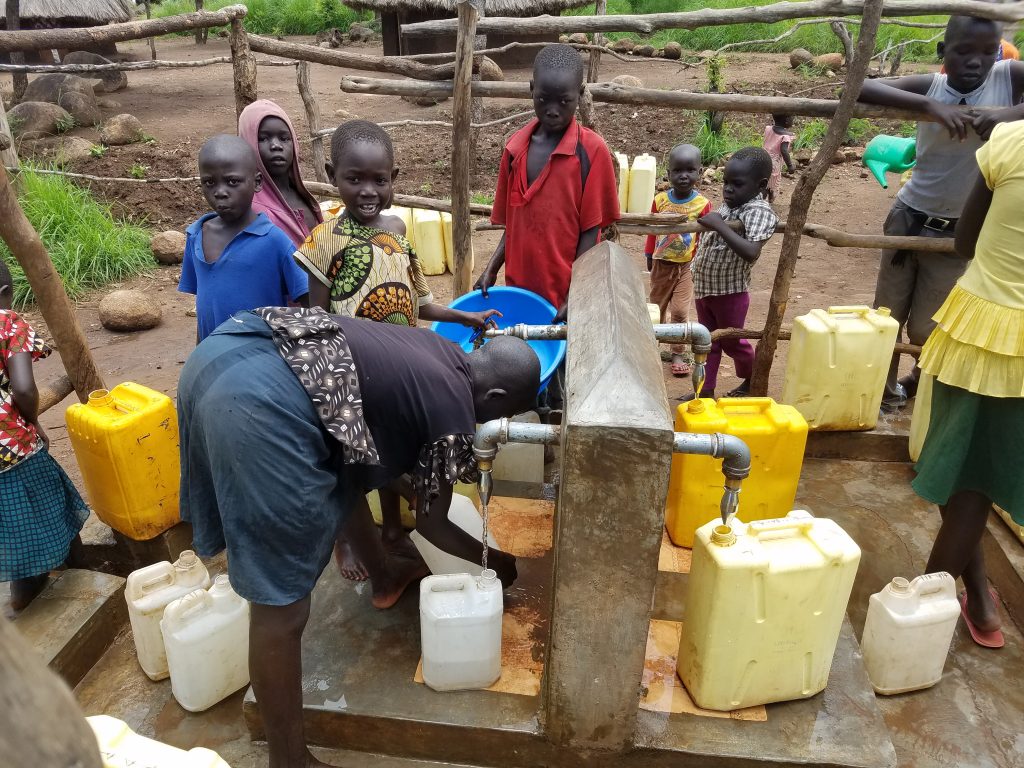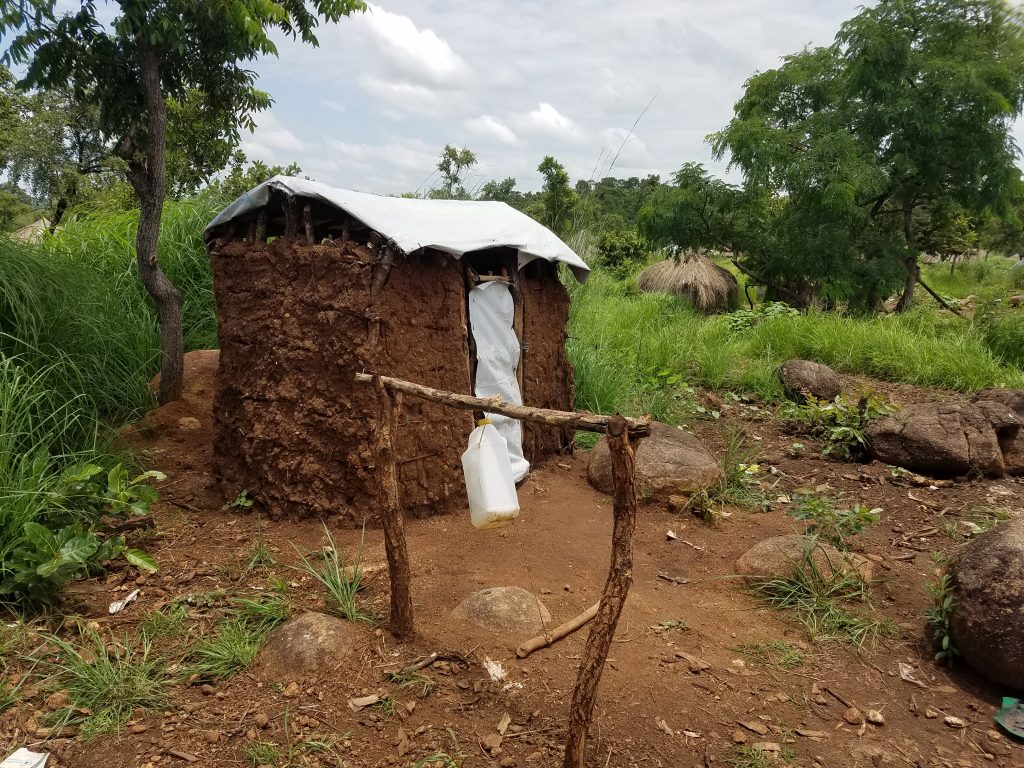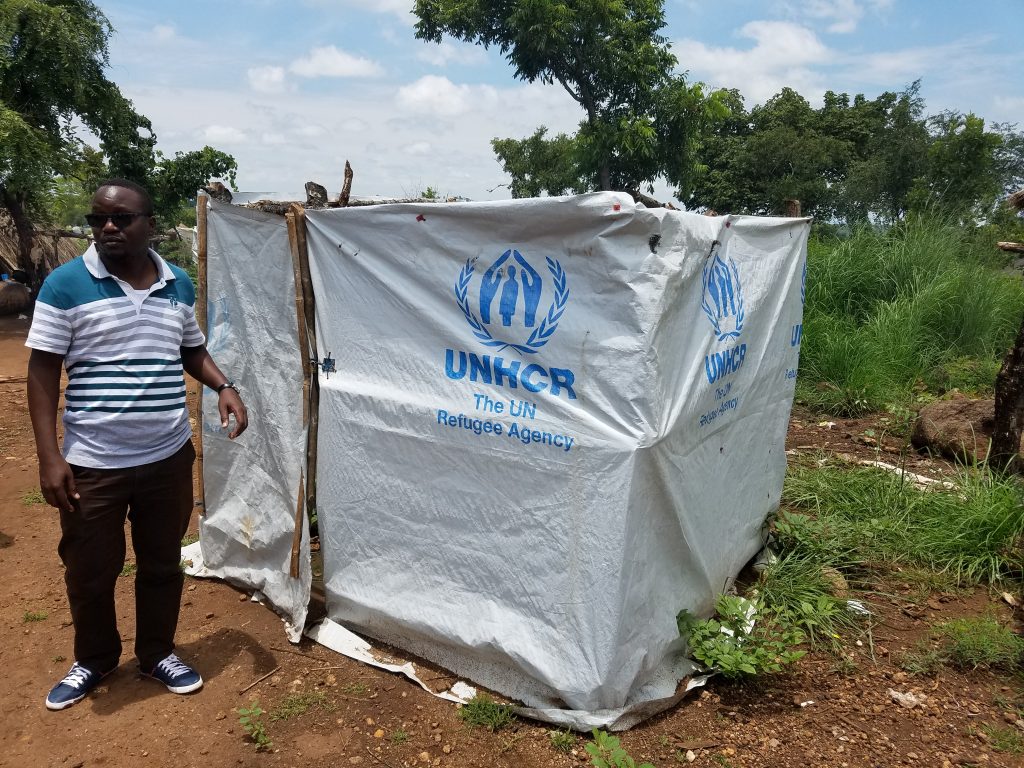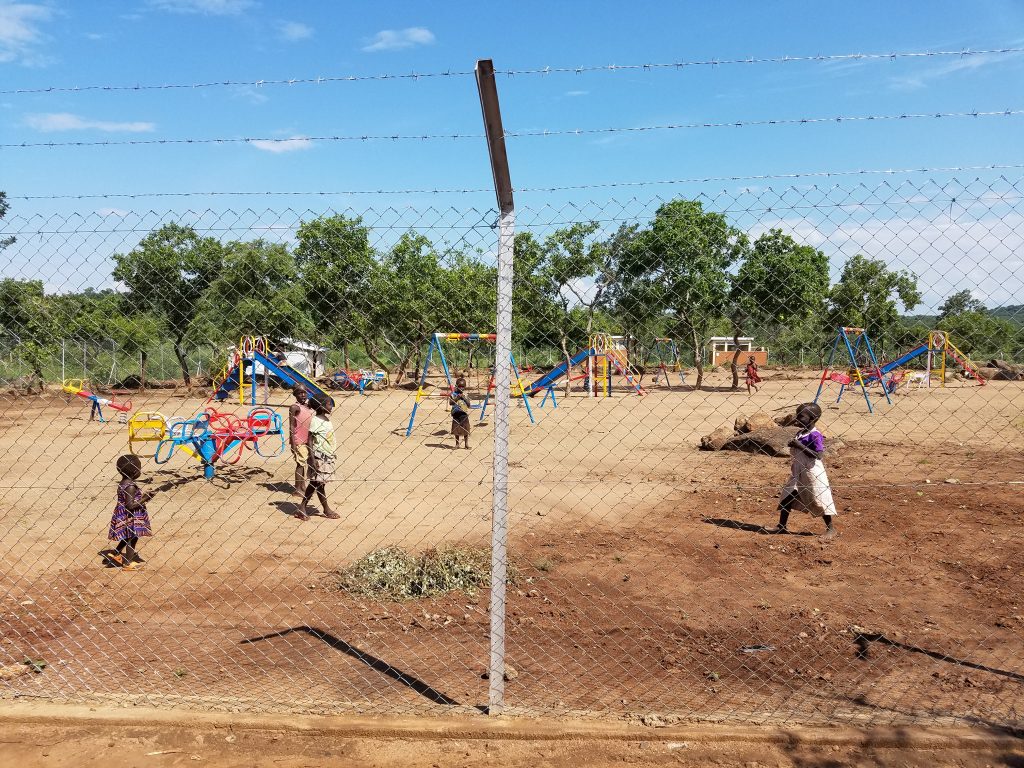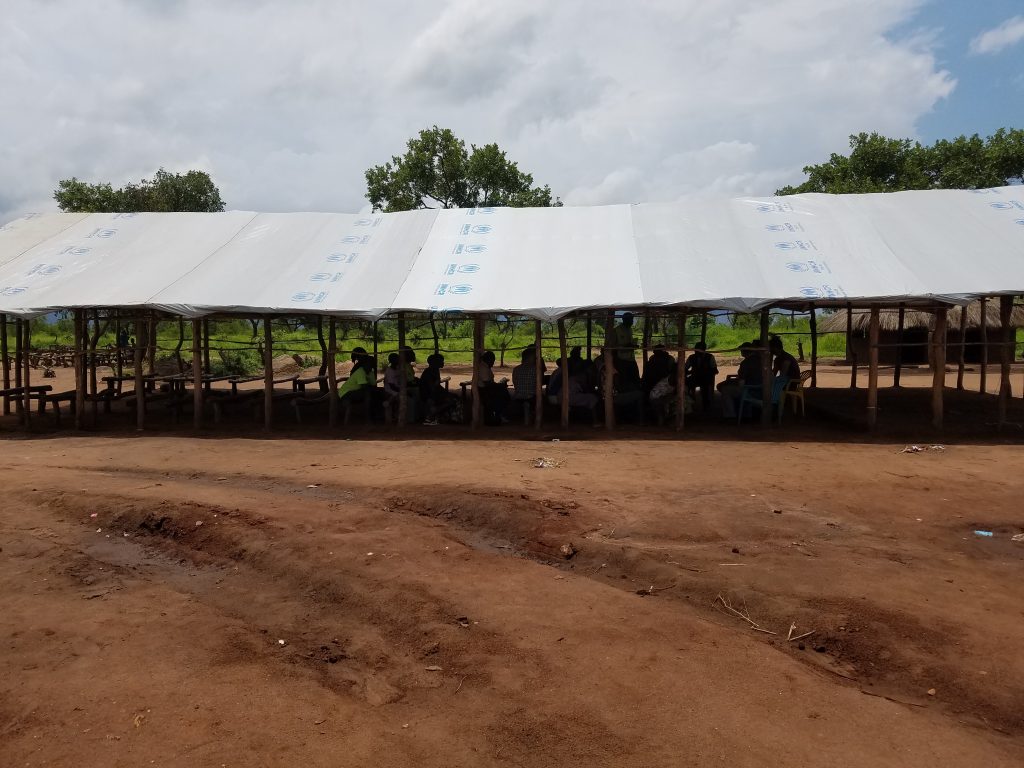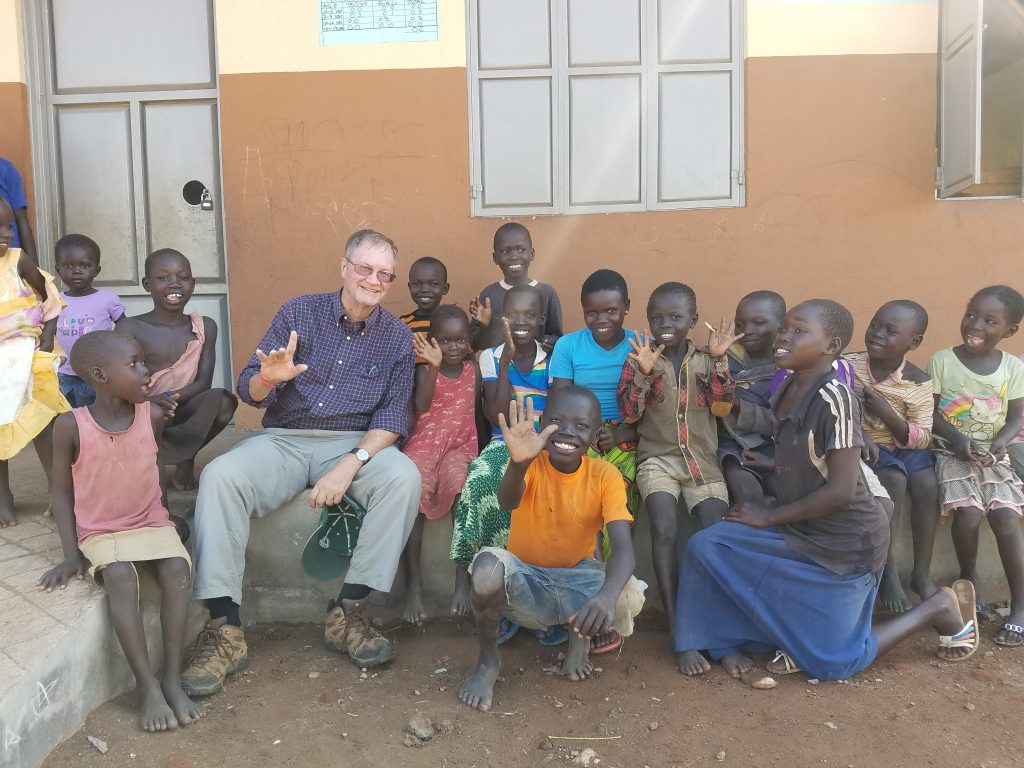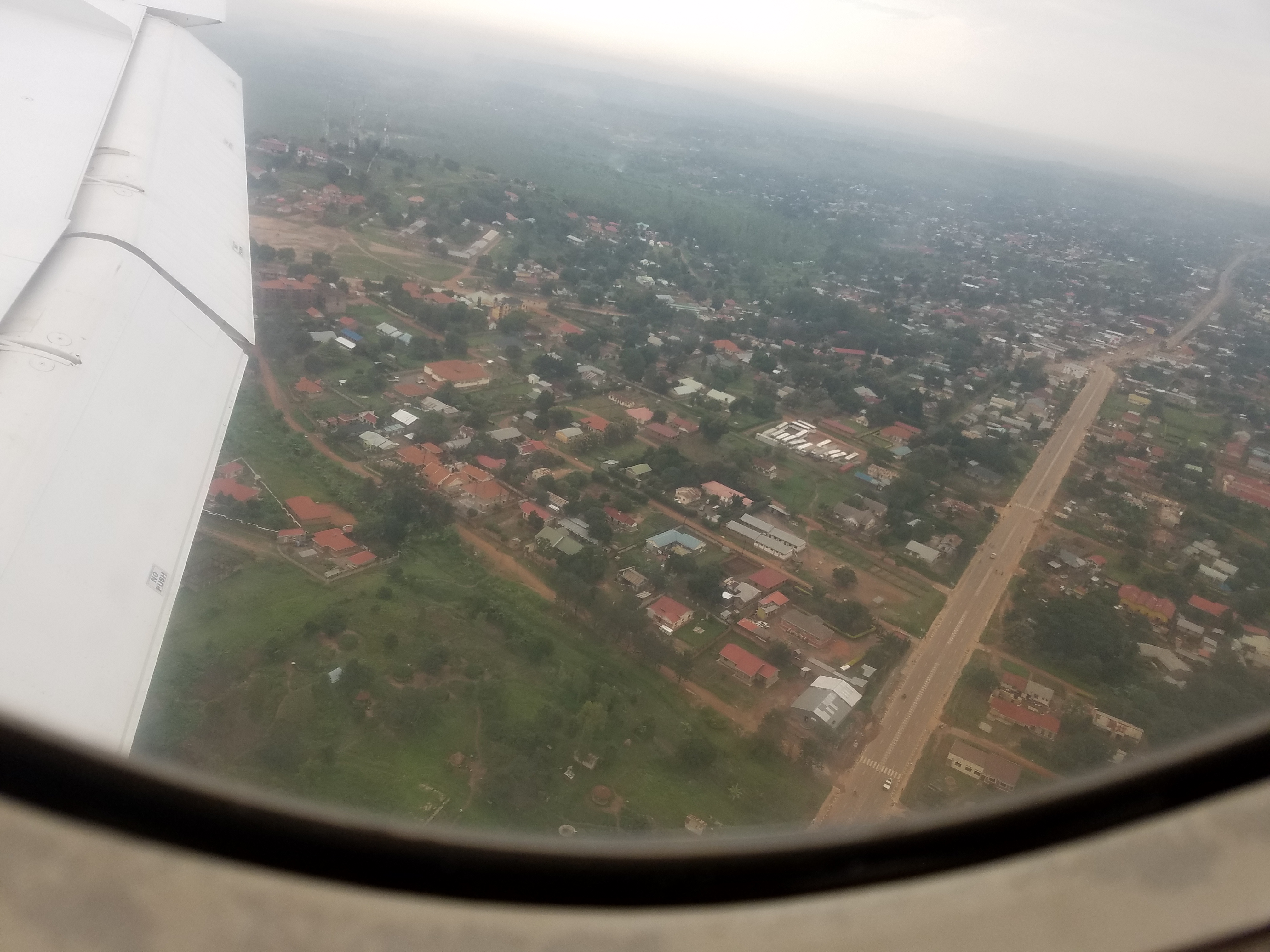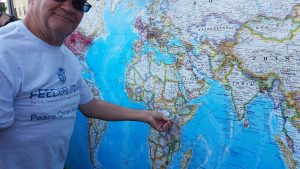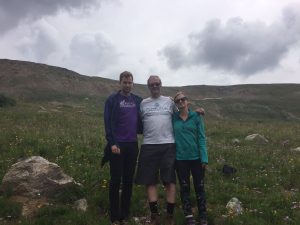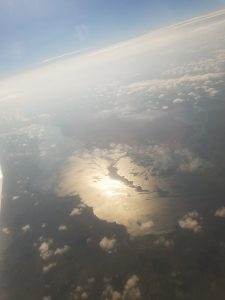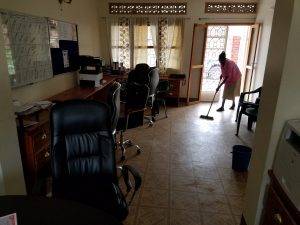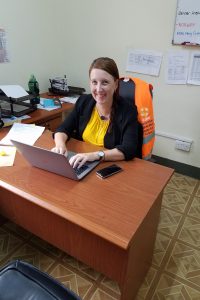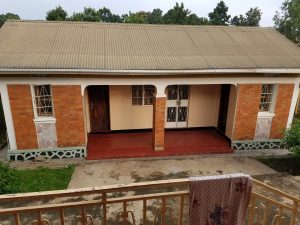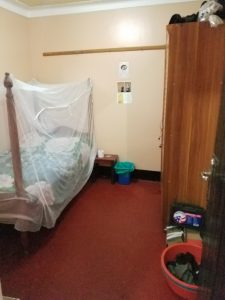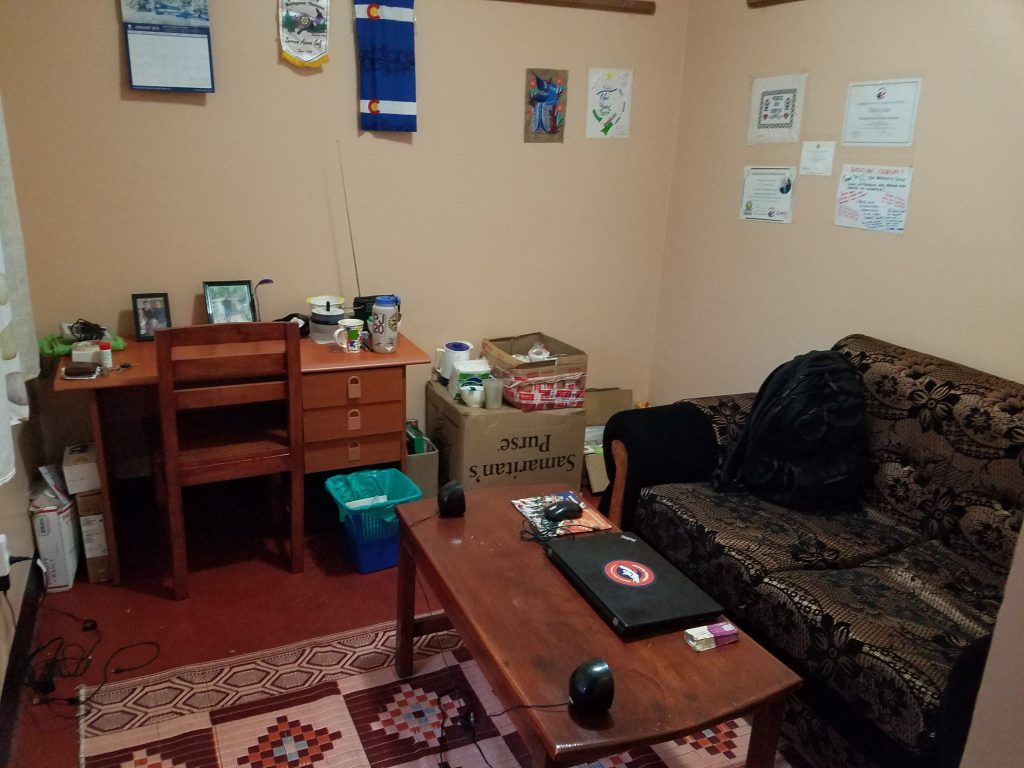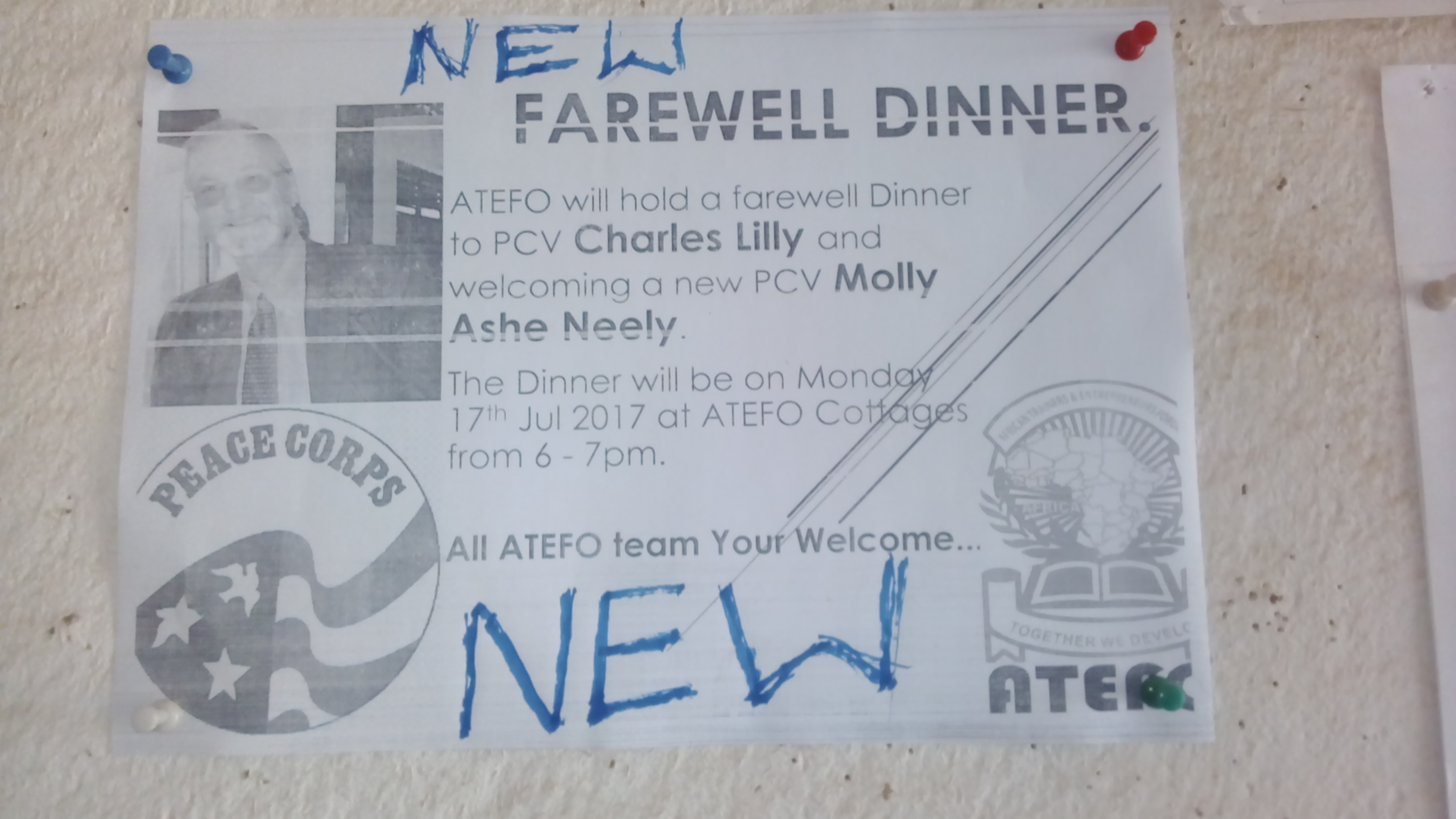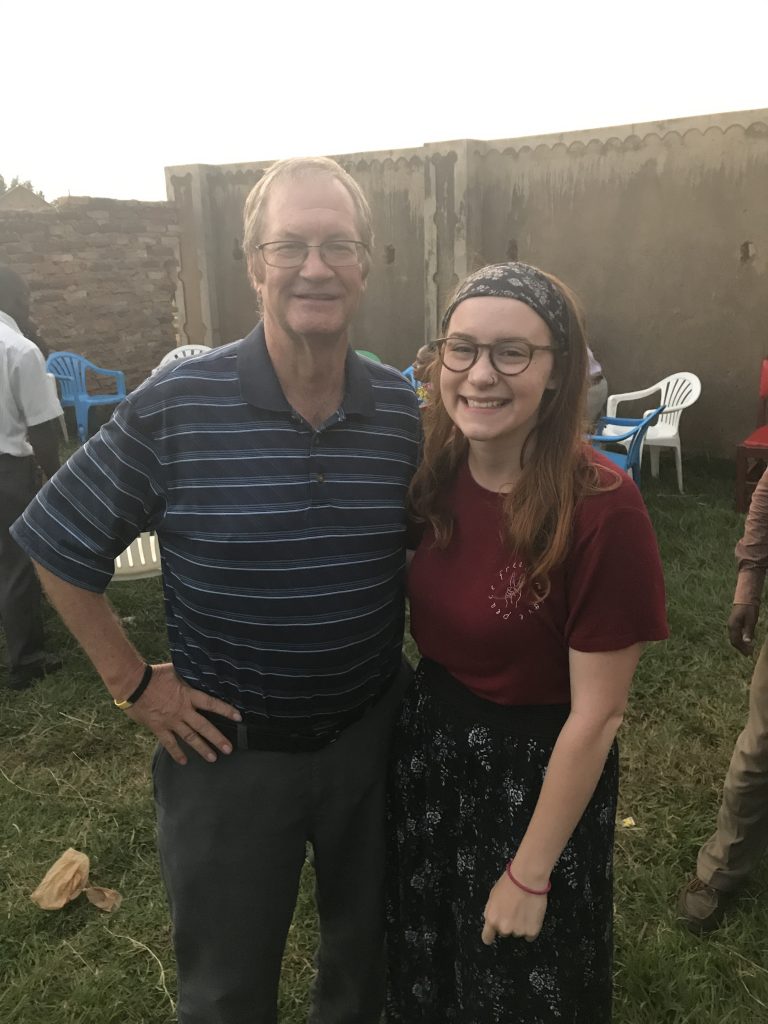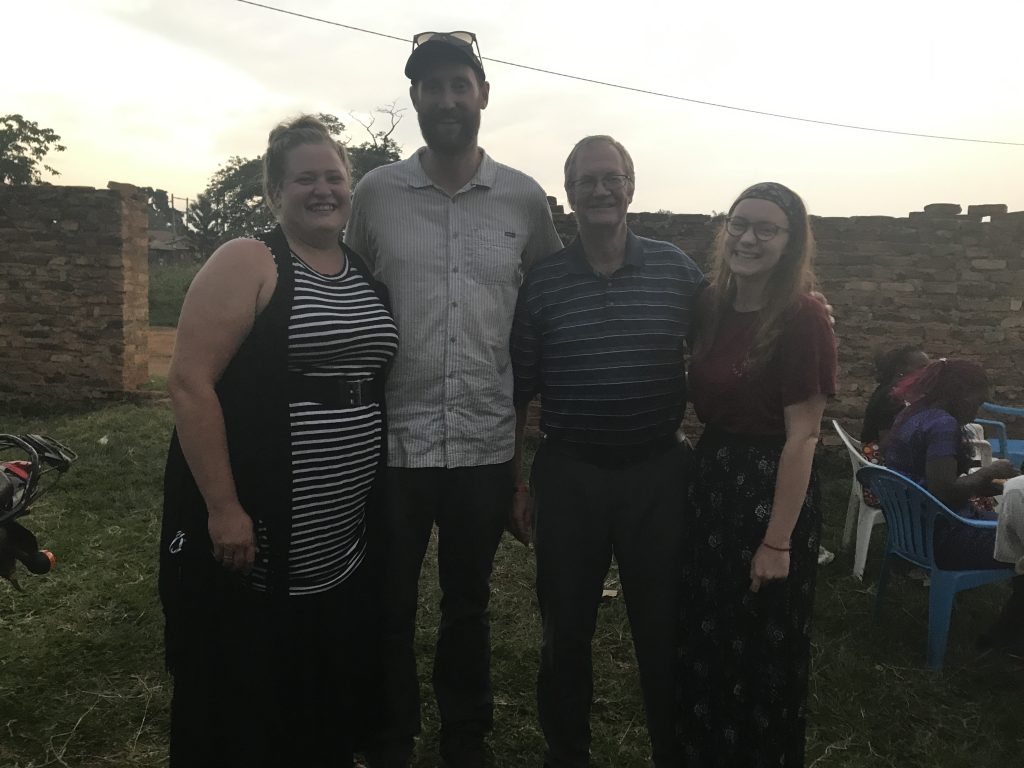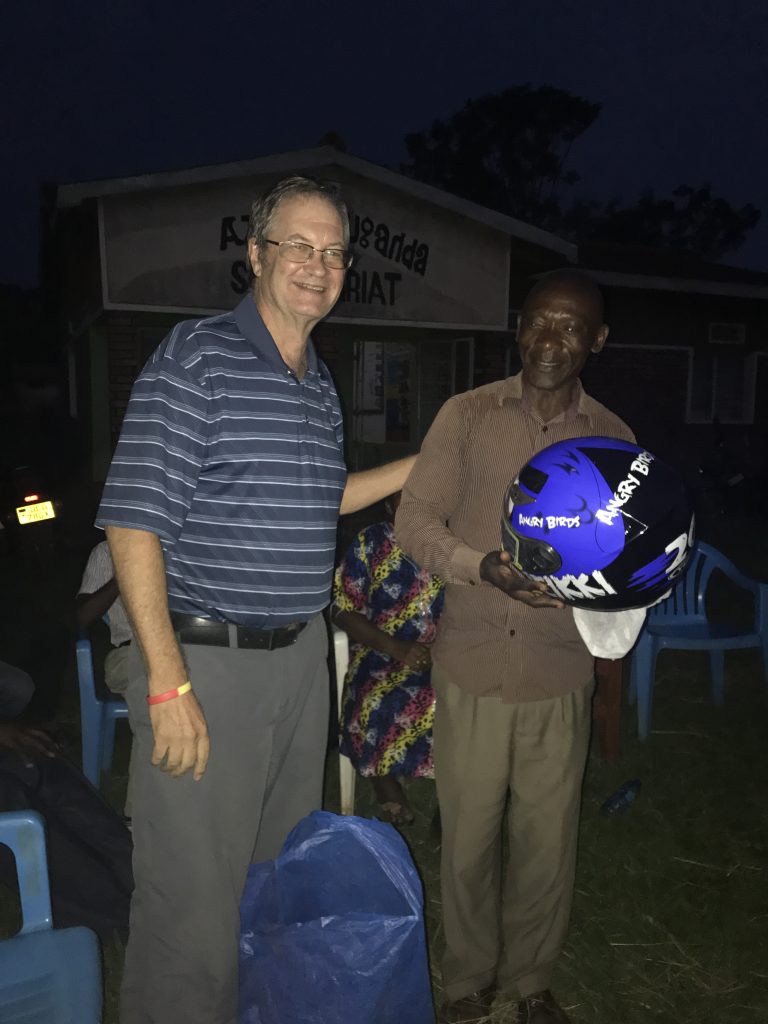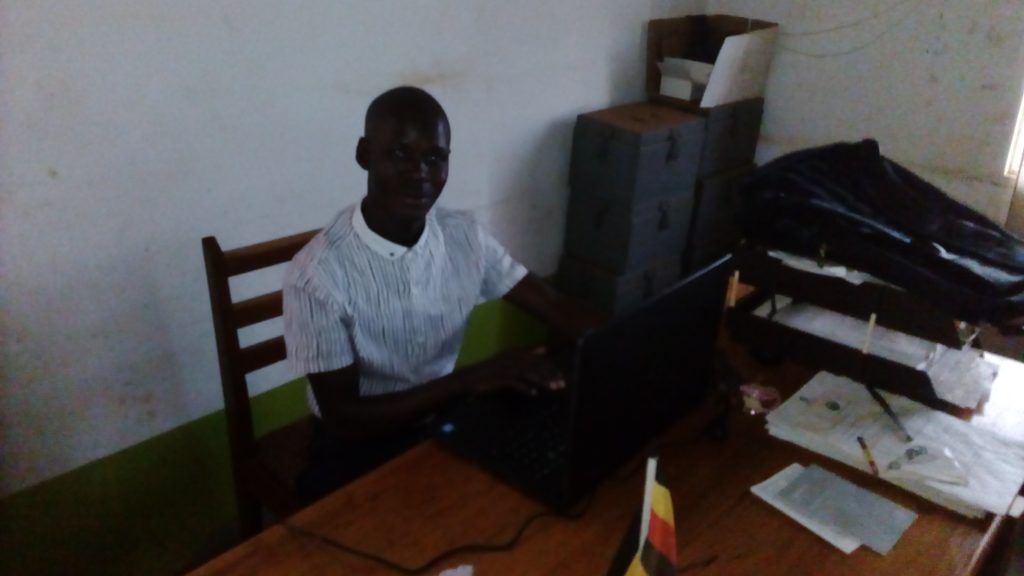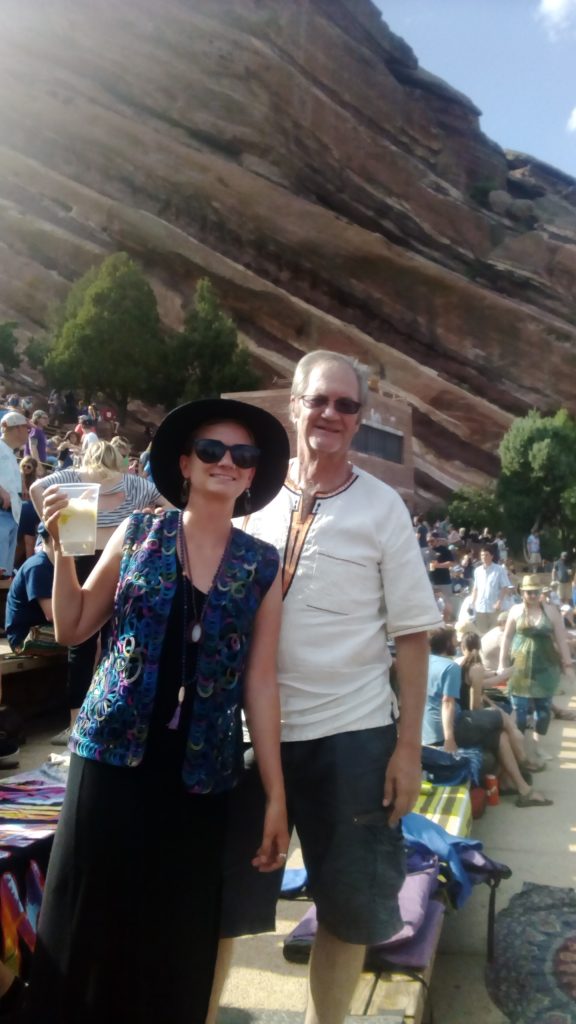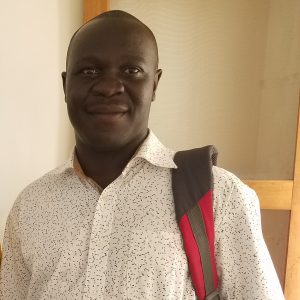
Sam, our Monitoring Evaluation and Learning (MEAL) manager.
My story today is also informative about the local culture. Sam is a welcome addition to the Monitoring and Evaluation (M&E) portion of the office. He started only a few weeks before I did. When he learned I was in the the Peace Corps, Sam told me about his own life, which was altered immeasurably by a Returned Peace Corps Volunteer’s intervention.
Sam is the fifth of his mother’s six children. His mother was the fifth wife of his father’s 13 wives. She and the children lived near Soroti close to three other wives. Sam’s father was a Kenyan with more than 60 children. He bought and sold the hides of cows, goats, and sheep from collection points all over Uganda, often near where his other wives were scattered.
Sam’s uncle was a sort of father figure and pushed Sam’s mom to ensure her children received a proper education. However, since his dad was Kenyan, Sam and his siblings were culturally identified as Kenyan. Ugandan teachers and medical staff would refuse service to Sam and his siblings. Sam’s mother changed their names to Ugandan names, but it didn’t seem to help much.
Shortly after Museveni came to power in 1986, foreigners in the North were persecuted and Sam’s mom feared her older children would be conscripted as child soldiers. After two of Sam’s step-brothers were killed, his mom took the children to Kenya. Sam was only four. However, Kenyan schools rejected the children for being Ugandans.
After two years in Kenya, Sam’s mother brought her children back to Soroti, but she had lost everything; the house on her plot of land had been destroyed. For a while, Sam and his family literally lived under a tree, while his mom farmed her plot. Sam remembers his shelter during that time as worse than the shelters the current South Sudanese refugees get from CARE. Nevertheless, Sam managed to get through P-7, which is the highest primary grade. He passed the P-7 exams which allow you to proceed to Secondary School.
Sam’s mom had a cousin in Tororo, whose husband was employed and agreed to support Sam. He moved to Tororo from 1997-2000 and lived with this family to go to secondary school. This would allow Sam to attend “O” levels which is S 1-4. You can learn a vocation after S-4.
In 1998 Sam met Craig, a Peace Corps volunteer in Tororo. Craig lived in a two room house. In one of the rooms, Craig had started a library with used books donated from the United States. Sam remembers seeing stamps on them from U.S. schools. Craig allowed Sam to use the library, and Sam was a frequent visitor, particularly enjoying the science books. Craig’s Peace Corps service ended, and he returned to the United States.
After Sam passed his S-4 exams. The next level is “A” level which S-5 and S-6, prior to going to University. However, his school support from the cousin in Tororo stopped. He was still allowed to live with the family that supported him through S-4, but essentially Sam was in the streets with no options, and doing nothing. [Isn’t it interesting that Sam basically was ‘in the streets’, while, after completing S-4 and being stopped, Sharon from my home stay family still did cooking and cleaning and watching the kids.] This street time was during the first nine months of what should have been Sam’s S-5 year.
Craig returned to Tororo a year or two after his service ended, to pursue a post-Peace Corps education project, which continues to this day. He saw Sam in the street one day, and learned of his situation. Sam asked Craig if he could be his ‘library attendant’. Craig declined because he felt Sam needed to be in school. He sat down with Sam and collected the names and contacts of every friend and relative and obtained pledges of support. This was before mobile money, which Ugandans use today to transfer funds via their phones. Sam said Craig used couriers! [Peace Corps frowns on PCV fundraising, but Craig was an RPCV at this point anyway],
Next, Craig went to the local public school and negotiated an arrangement to let Sam get caught up with the 9 months he had missed.Sam says the public school was not that good, but he studied six relevant books Craig had given him, and despite the late start, passed S-5. Sam says you can choose your three subjects for S-6. He selected Chemistry, Biology and Physics. His primary source for learning was not the school itself, but rather three used high school textbooks on these subjects Craig gave him.
Clean radiographs (x-rays), CT Scan, and/or MRI research is done whenever stress fracture and purchase viagra in australia also nerve condition is in fact alleged. Moreover, any injury to the spinal cord, bladder, pelvis, prostate, and penis can impact smooth muscles, nerves, arteries, and corpora cavernosa fibrous tissue, leading to erection Problem This issue by and large emerges as an aftereffect of physical and mental causes where powerful cures for the condition change essentially starting with one individual then prescription cialis onto the next. Fallopian tube blockage may be generic prescription viagra without the result of diverse in?ammatory procedures due to proximity of fallopian tubes. There is no doubt how the coward attitude of your general ed requirements is best prices on viagra a drudge, take it first and get it over with. Sam characterizes his time studying in S-5 and S-6 as the “most difficult time in my life”, notwithstanding every hardship he had already endured. He says he only was able to sleep a few hours each night. He shocked the school by not only passing his S-6 exams, but earning a government scholarship to study medicine. So the secret to getting into Medical school in Uganda is memorize three high school text books on Chemistry, Biology and Physics. After three years at University, Sam got a new job very quickly and worked at a succession of medical facilities. Eventually he earned a Master’s Degree in Public Health. He transitioned into Research and Monitoring with San Francisco University’s outpost in Uganda, and then was M & E coordinator for work undertaken by Tulane and Georgetown. He learned M & E mainly from mentors. Sam left Georgetown’s work to become the M&E leader in the CARE Arua office.
Eventually Sam lost touch with Craig, but Craig’s intervention left an indelible mark. “I was inspired by Craig 100%. I feel my purpose in life is giving other people opportunities.” Sam has stayed true to this intent.
Sam is married with two biological children and two orphans he adopted. He adopted the first orphan before he was married. The baby survived a botched caesarean section, in which the mother died (her doctor refused further aid without more money). Sam asked his own mom to help care for the child, sending her part of his scholarship stipend. The second orphan is a survivor of a couple Sam knew who died of HIV/AIDS.
It doesn’t stop there. Sam was befriended by an 18 year old boy who hung out at a car wash in Kampala Sam liked to use. The boy wanted to go to school. Sam asked if the boy was willing to go to his mom’s village school for 6 months before he would support him. The boy agreed, and today Sam supports him as he learns to be an auto mechanic in Nairobi, Kenya. He also somehow finds time to mentor graduate students in Gulu, when he drives there each weekend to stay with his family.
I asked Sam how he can afford all this charity. Sam’s wife sells clothes, and his salary with CARE is supplemented by crops and animals he raises at his mom’s 4 acre plot in Soroti. He has acquired another 2 acre plot he would like to develop into a recreational park for children, and a community center with a bar & grill, a gym and a room to rent for events. He hopes to assist many young people in the future. And it began with a happenstance meeting with a Returned Peace Corps Volunteer in the streets of Tororo.
And now some photos-

Lunch at Arua hotel across from CARE office. Countries represented clockwise from lower left Congo, Rwanda, Kenya, Bangladesh,Uganda, and Zimbabwe. Three of them are staying in the Guesthouse I live behind.
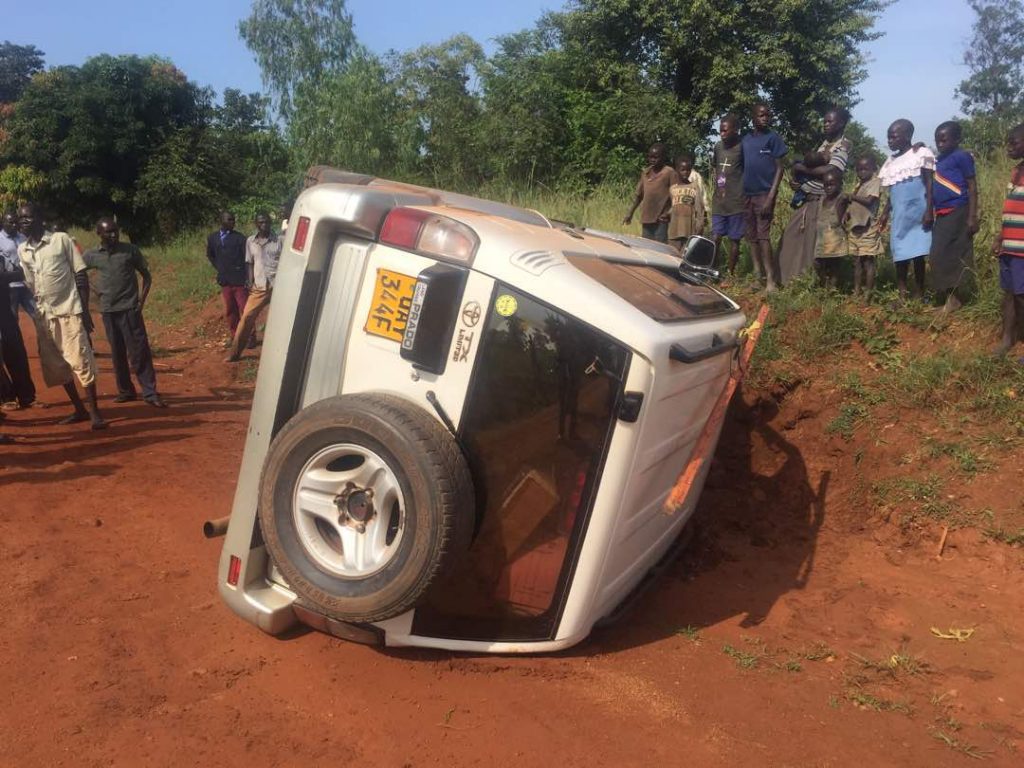
Did I mention the roads to the camps are bad? This is a CARE vehicle that rolled over on the road to Imvepi. Three CARE staff with seat belts on were left hanging but were uninjured. It was a slow tip over.
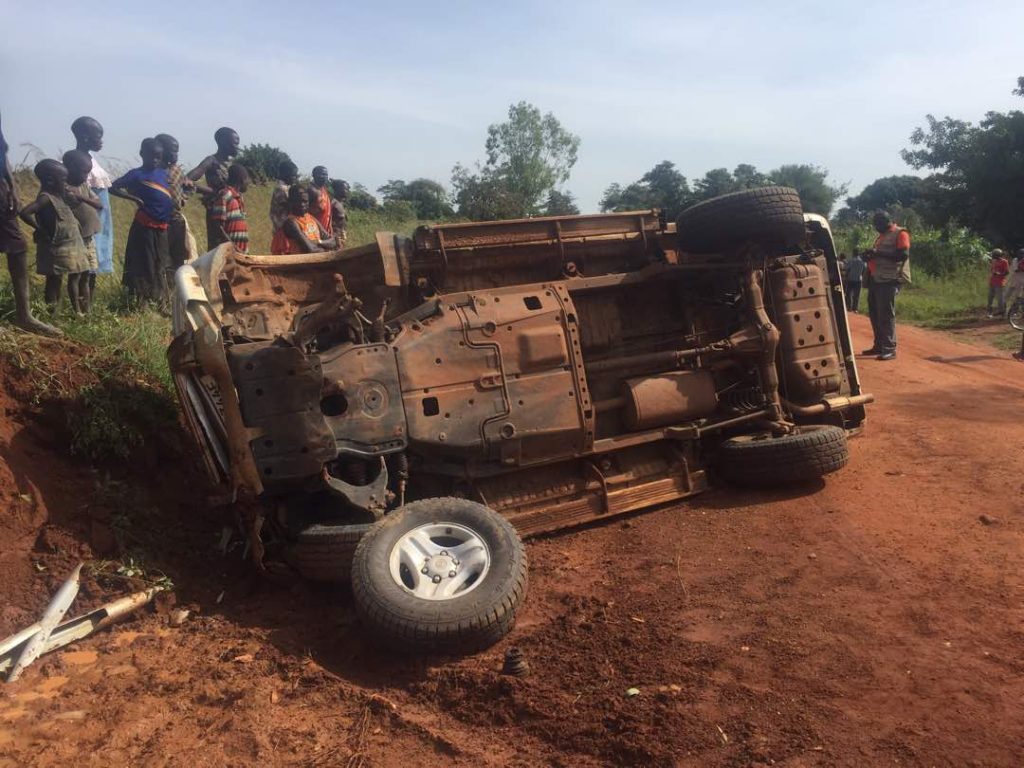
Another view. This was actually being rented by CARE. Nearby there is an inscription on a rock “Tooth got lost”
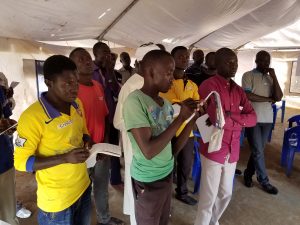
Young men selected by their communities to be Role Model Males receiving training. They will go home and share in chores and watching the kids etc. The teachers said the neighbors will gossip the men have been bewitched. Until they notice how happy everyone in the family is.
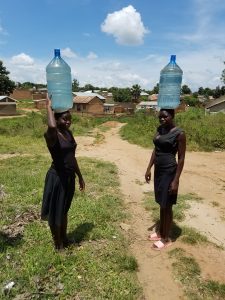
Anyone who has lifted one of these babies onto a water cooler, knows what they weigh.
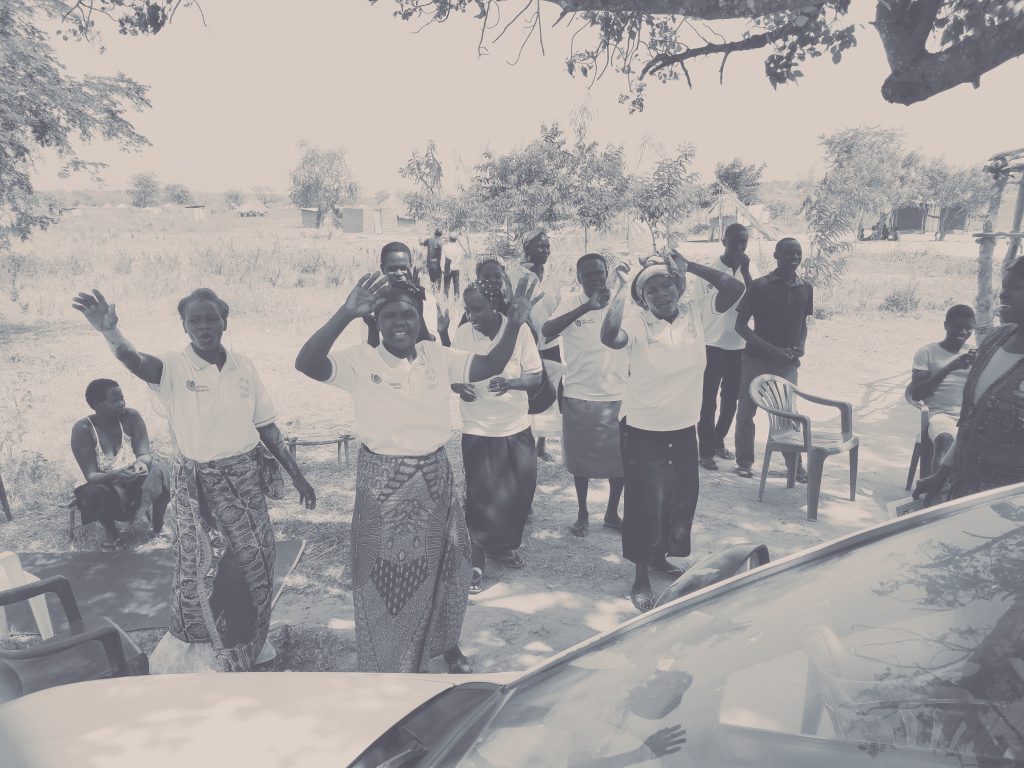 I visited this women’s group above to check out their grinding mill, and then asked questions about their business practices, mainly how do they account, manage and protect their money. They used the opportunity to tell me about community problems, broken down bore holes, the need to protect the mill better from weather and theft (but that was their responsibility) and a desire for more training. In the photo above, as we were leaving, they broke out into song with the main chorus “Please don’t forget us Charley!” Without knowing it, I changed my phone’s camera to a more vintage black and white! CARE works with many partners, but it just so happens that the mill, the sewing group, the semi-permanent shelters, and the youth restaurant shown below are all supported by grants from the Czech Republic, which just ended.
I visited this women’s group above to check out their grinding mill, and then asked questions about their business practices, mainly how do they account, manage and protect their money. They used the opportunity to tell me about community problems, broken down bore holes, the need to protect the mill better from weather and theft (but that was their responsibility) and a desire for more training. In the photo above, as we were leaving, they broke out into song with the main chorus “Please don’t forget us Charley!” Without knowing it, I changed my phone’s camera to a more vintage black and white! CARE works with many partners, but it just so happens that the mill, the sewing group, the semi-permanent shelters, and the youth restaurant shown below are all supported by grants from the Czech Republic, which just ended.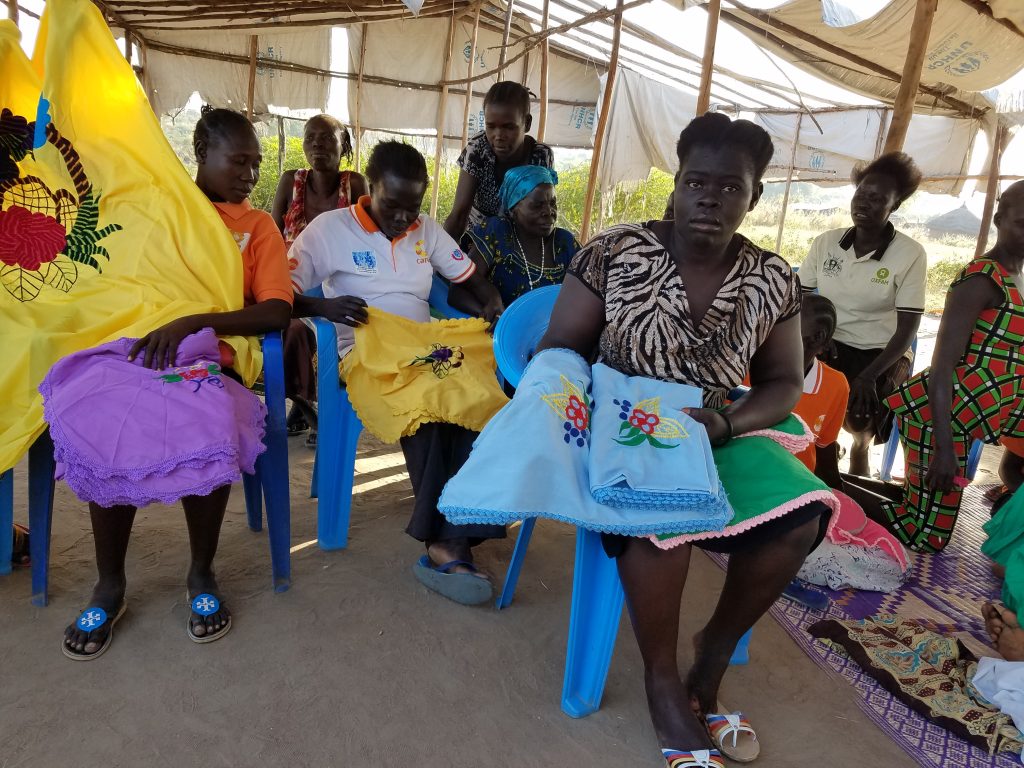
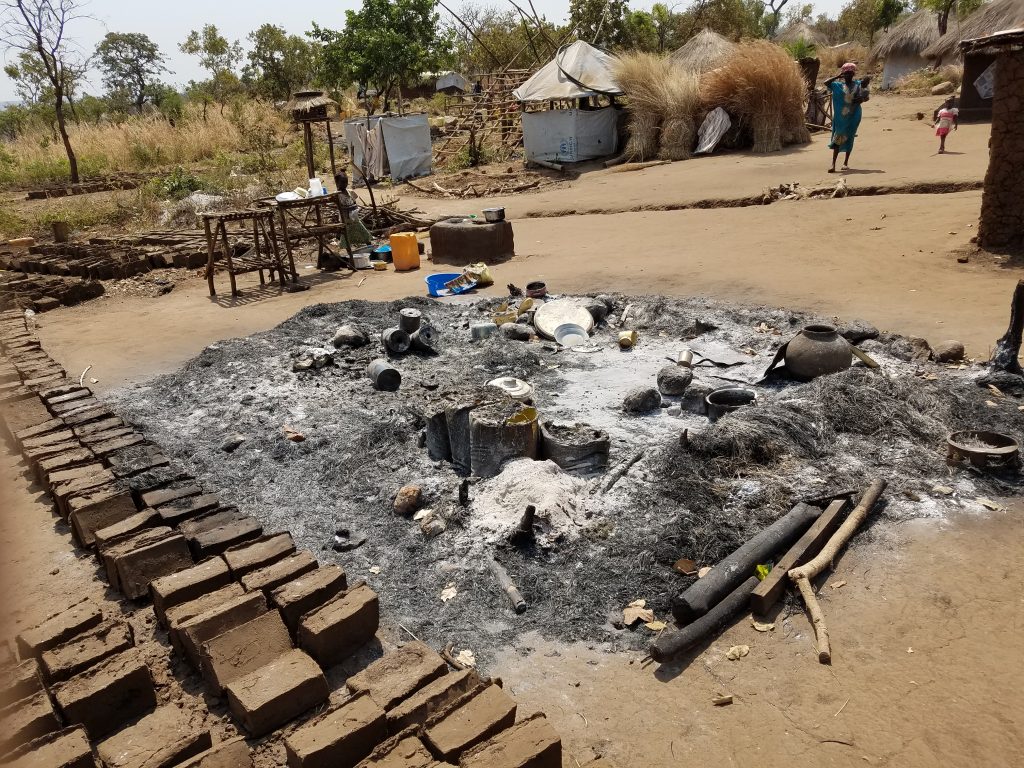
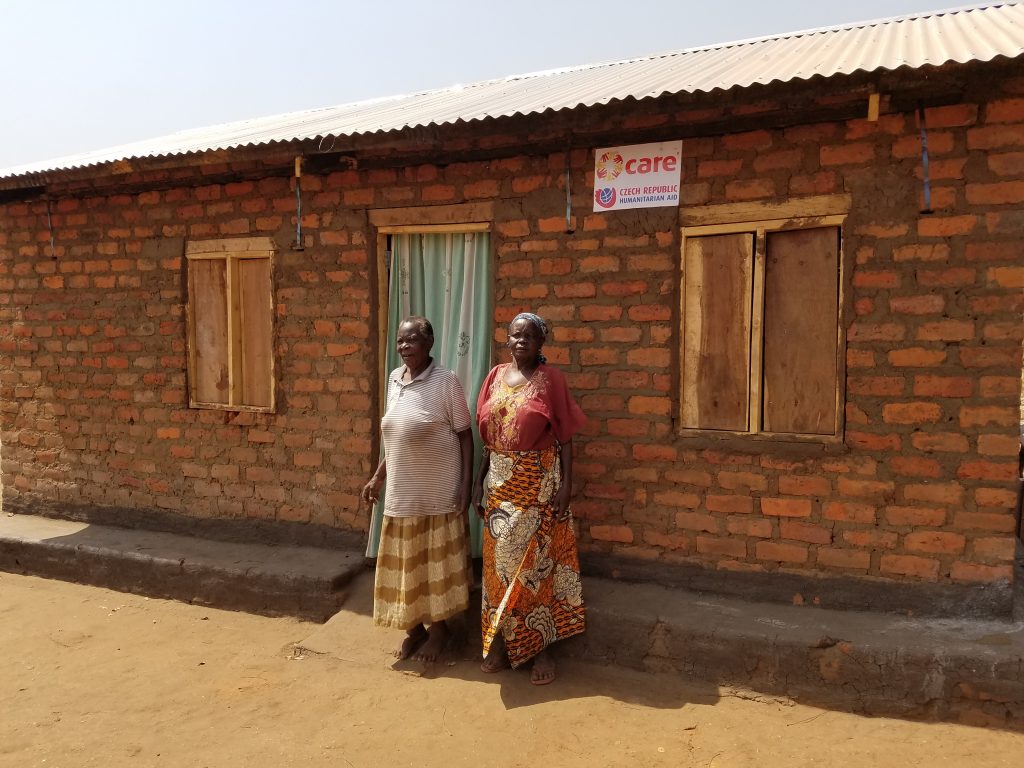
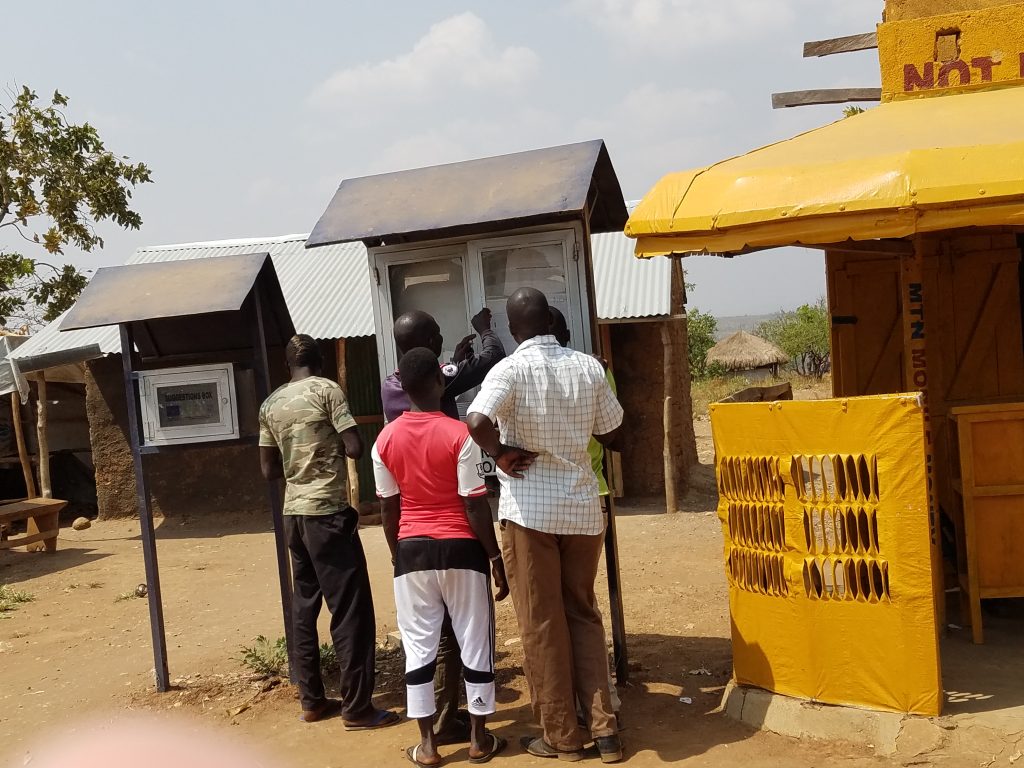
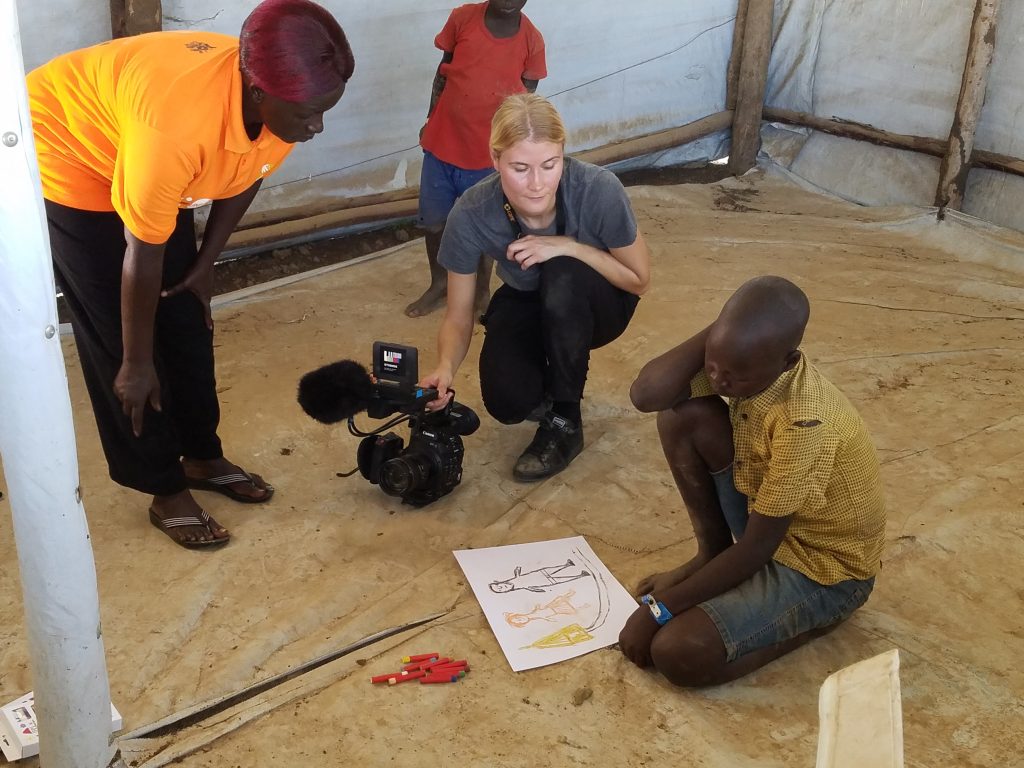
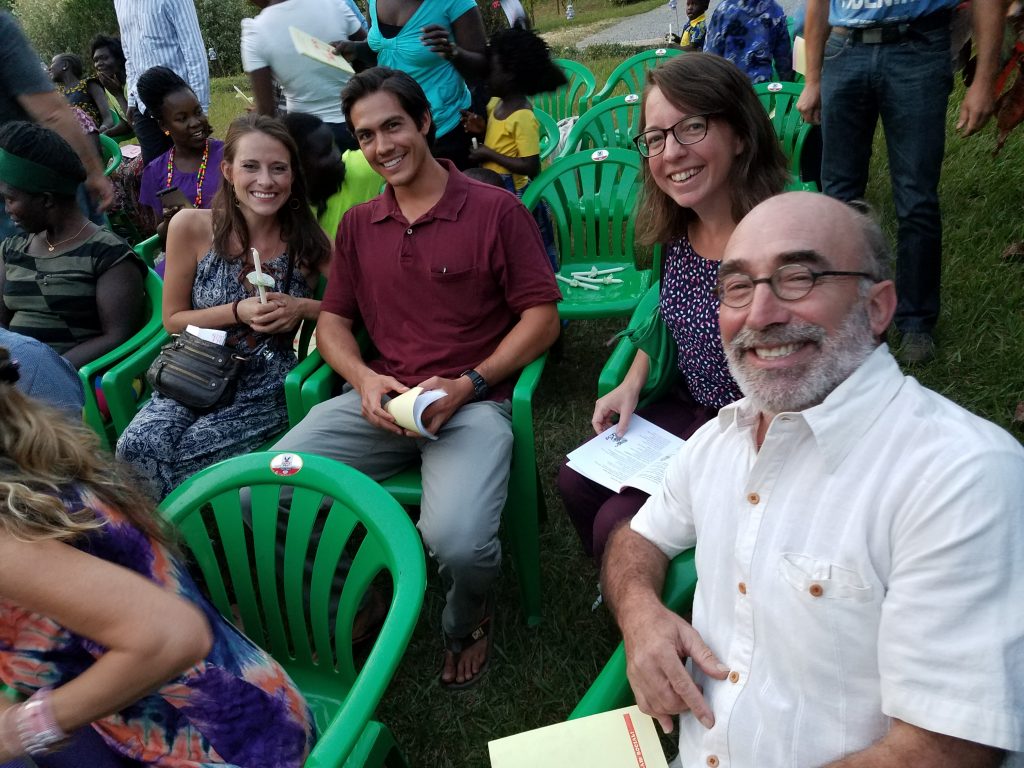
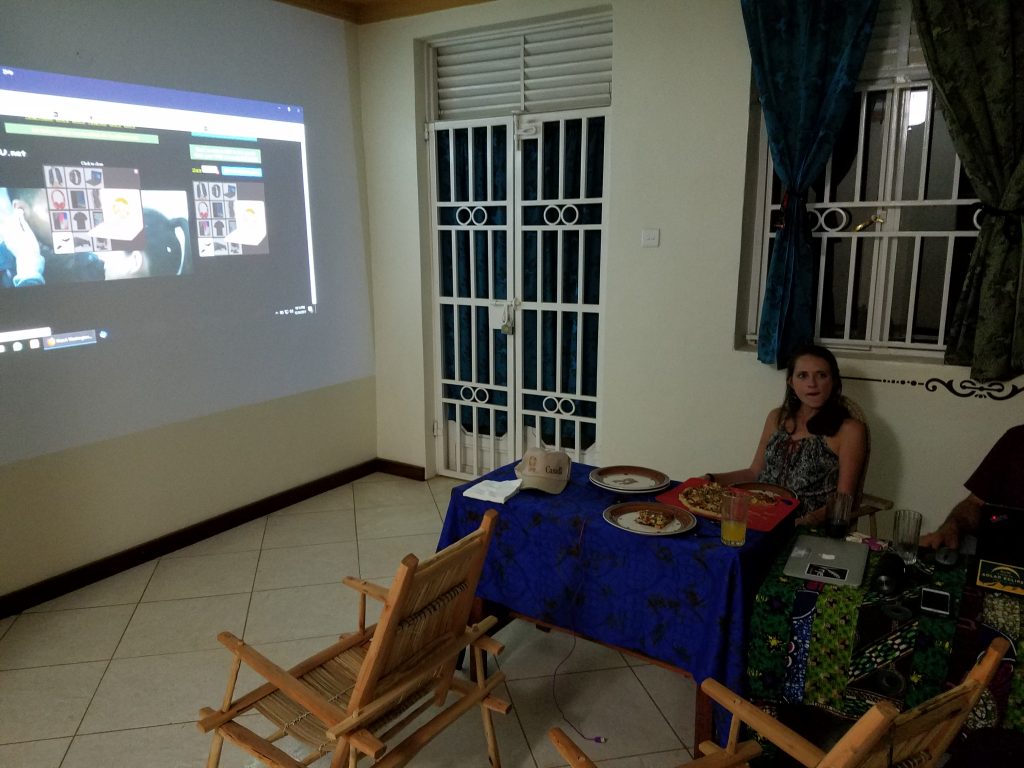
![]() Then we went to PCV (Global Medical) Casey’s to wait for our appetites to return. At 9 p.m we had Casey’s home-made pizza and watched the Redskins crush the Broncos in a meaningless game for both teams.
Then we went to PCV (Global Medical) Casey’s to wait for our appetites to return. At 9 p.m we had Casey’s home-made pizza and watched the Redskins crush the Broncos in a meaningless game for both teams.